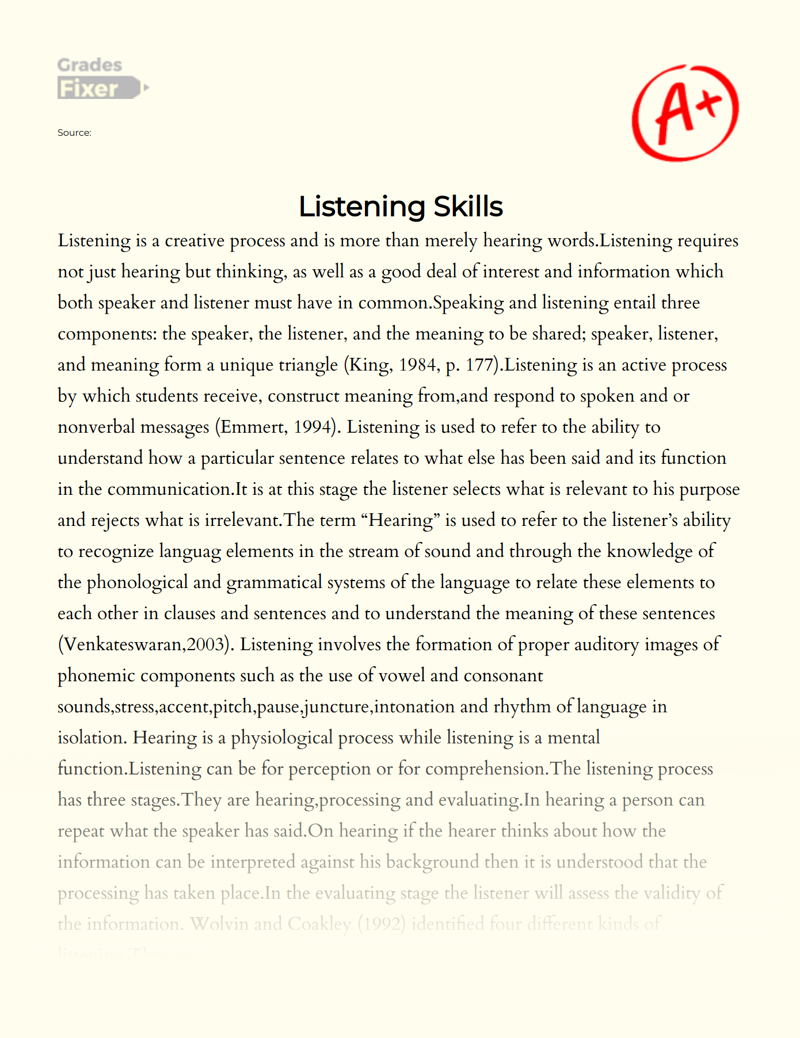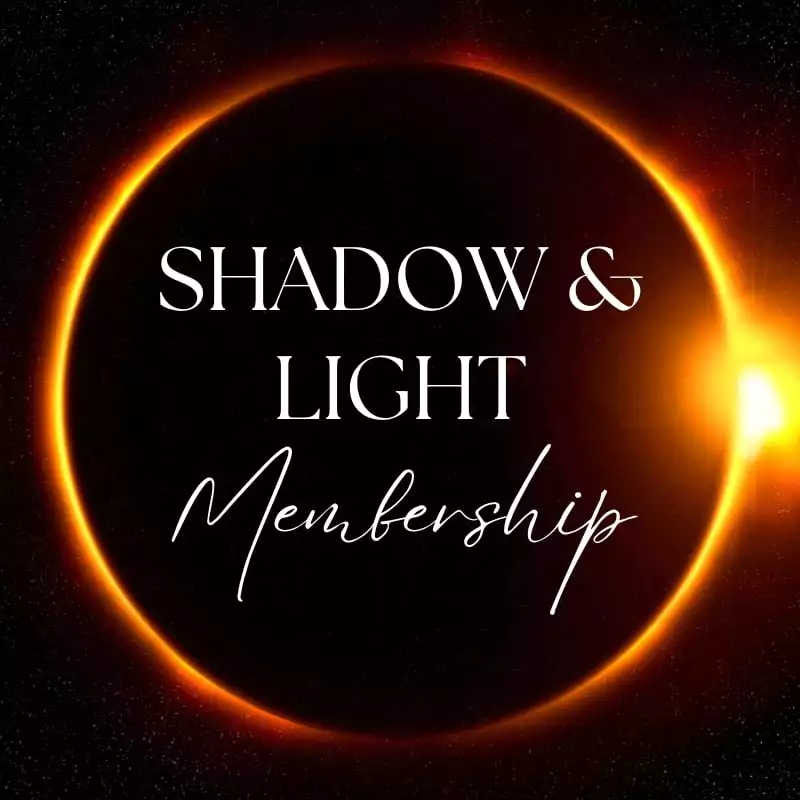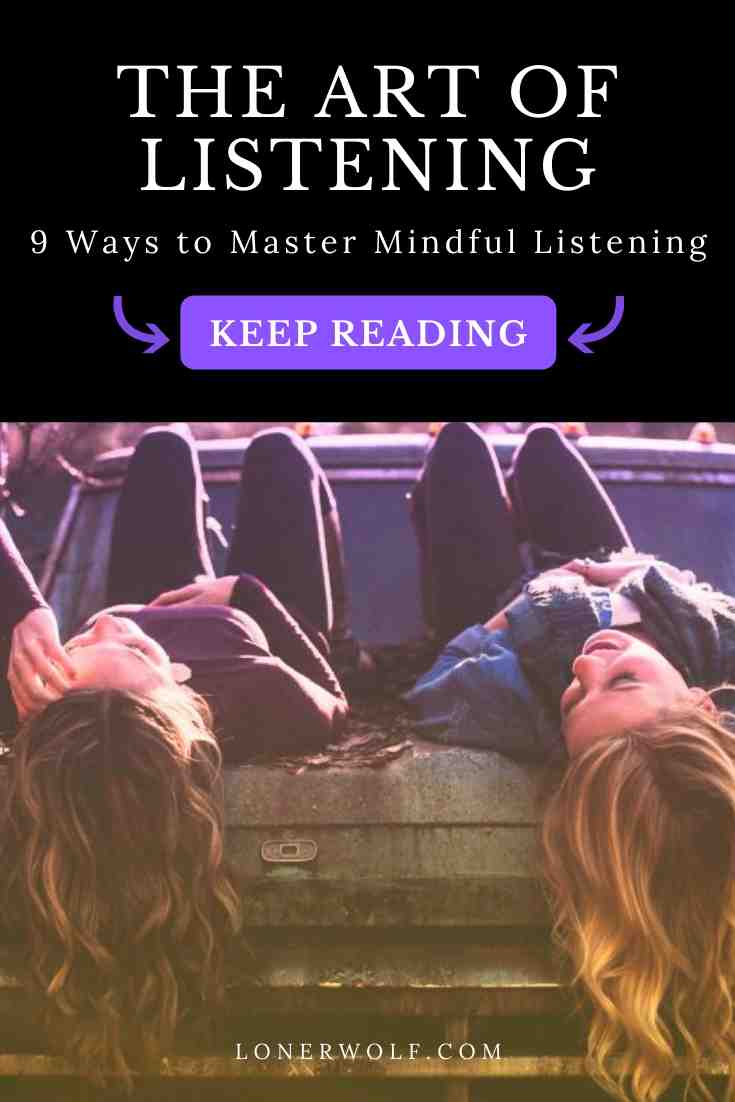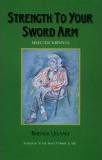The Art of Listening: Communication Skill Essay
Introduction.
Communication is a complex process that involves encoding and decoding of information. Listening, which is one of the communication elements, determines how effective the communication process is. Most people do not know how they can improve their listening skills in order to perfect communication. The process of improving listening requires one to develop a specific point of view to use in evaluating a message’s content. Among all communication skills, the art of listening is less emphasized. In most cases when dealing with communication skills problems, most people overlook listening (McKelvie, 2009). It is however important for communicators to understand that listening promotes good communication. As a good listener, one is required to differentiate the speaker’s emotional and delivery elements from the substance and content of the message (McKelvie, 2009). Most people are unable to overcome the distraction associated with the speaker’s emotional elements and thus end up receiving the wrong information.
To avoid being distracted by delivery and emotional elements which tend to cover the message’s content, it is important for a listener to learn how to differentiate facts and ideas. Generally, a listener should understand that listening entails more than message delivery. When listening, a listener should be keen to identify the core information. To avoid emotional element distraction, it’s important for a listener to bear in mind that emotional and delivery elements are not included in the message as elements for emphasizing the substance of the message, but rather as elements to help one in identifying the main substance of the message.
According to McKelvie, (2009), a listener should try to identify the content of message rather than dwelling on how the message is delivered. To avoid distraction by the delivery and emotional elements a listener should develop a habit of developing responses about the issues being discussed from the speaker’s messages. In addition, to be more focused on the message’s content and substance rather than its emotional elements, a listener should always try to find the answers for any questions arising from the speech.
Another way through which a listener can learn how to improve communication is by trying to analyse the message or speech’s content from someone else’s point of view (McKelvie, 2009). Analysing the message using a different person’s point of view increases the listener’s horizon which enables him to have a better understanding of the specific topic. In order to avoid distractions when listening and improve on identifying the message content, a listener should learn when and how to focus on facts. Listeners should always bear in mind that facts are generated from ideas (McKelvie, 2009). Since the process of identifying facts is a complex one, listeners need to learn how to give the speaker undivided attention. Making notes while listening can help a listener improve his listening skills (McKelvie, 2009).
As a way of lowering distraction by the emotional and delivery elements of the message and focus more on the content of the message, a listener should learn how to relate the message delivery system with message content. A good listener should be in a position to differentiate ideas and employ this skill in analysing the message’s content. A listener should be in a position to identify some of the emotional and delivery elements such as biased perspective and environmental factors that are most likely to cause him to have a distracted attention while listening. One strategy through which a listener can avoid message distractions is by learning to focus mainly on facts rather than ideas (McKelvie, 2009).
McKelvie, R., (2009). Listen Better to improve relationships . Suite101 publishers.
- Chicago (A-D)
- Chicago (N-B)
IvyPanda. (2021, December 26). The Art of Listening: Communication Skill. https://ivypanda.com/essays/the-art-of-listening-communication-skill/
"The Art of Listening: Communication Skill." IvyPanda , 26 Dec. 2021, ivypanda.com/essays/the-art-of-listening-communication-skill/.
IvyPanda . (2021) 'The Art of Listening: Communication Skill'. 26 December.
IvyPanda . 2021. "The Art of Listening: Communication Skill." December 26, 2021. https://ivypanda.com/essays/the-art-of-listening-communication-skill/.
1. IvyPanda . "The Art of Listening: Communication Skill." December 26, 2021. https://ivypanda.com/essays/the-art-of-listening-communication-skill/.
Bibliography
IvyPanda . "The Art of Listening: Communication Skill." December 26, 2021. https://ivypanda.com/essays/the-art-of-listening-communication-skill/.
- The Discrepancy Between an Original Psychological Article and Its Representation
- Exxon Mobile Company's Communication Strategy
- Henry Jenkins’ Theory of Convergence Culture
- Analysing a community development
- Designing a Sufficient Storyboard
- Distractions While Studying: Advantages and Disadvantages of Distraction
- Whaling is Unethical Socially: Analysing the Problem
- Analysing The Lesson By Tim Bedley
- Measuring Beliefs About Distraction by Senn and Radomsky
- Analysing Customers Through Mosaic
- Ability to Convey Verbal Messages
- Types of Conflicts and Ways to Resolve Them
- Analyzing Messages in Communications: E-Mail Examples
- The Communication Needs of the Shawnee Indian Tribe
- Facilitation Technique: A Framework for Efficient Communication

Husband and Wife (detail, 1945) by Milton Avery. Gift of Mr and Mrs Roy R Neuberger. Photo by Allen Phillips/ Wadsworth Atheneum

The art of listening
To listen well is not only a kindness to others but also, as the psychologist carl rogers made clear, a gift to ourselves.
by M M Owen + BIO
Writing in Esquire magazine in 1935, Ernest Hemingway offered this advice to young writers: ‘When people talk, listen completely… Most people never listen.’ Even though Hemingway was one of my teenage heroes, the realisation crept up on me, somewhere around the age of 25: I am most people. I never listen.
Perhaps never was a little strong – but certainly my listening often occurred through a fog of distraction and self-regard. On my worst days, this could make me a shallow, solipsistic presence. Haltingly, I began to try to reach inside my own mental machinery, marshal my attention differently, listen better. I wasn’t sure what I was doing; but I had crossed paths with a few people who, as a habit, gave others their full attention – and it was powerful. It felt rare, it felt real; I wanted them around.
As a culture, we treat listening as an automatic process about which there is not a lot to say: in the same category as digestion, or blinking. When the concept of listening is addressed at any length, it is in the context of professional communication; something to be honed by leaders and mentors, but a specialisation that everyone else can happily ignore. This neglect is a shame. Listening well, it took me too long to discover, is a sort of magic trick: both parties soften, blossom, they are less alone.
Along the way, I discovered that Carl Rogers, one of the 20th century’s most eminent psychologists, had put a name to this underrated skill: ‘active listening’. And though Rogers’s work was focused initially on the therapeutic setting, he drew no distinction between this and everyday life: ‘Whatever I have learned,’ he wrote, ‘is applicable to all of my human relationships.’ What Rogers learnt was that listening well – which necessarily involves conversing well and questioning well – is one of the most accessible and most powerful forms of connection we have.
T he paucity of my listening powers dawned on me as a byproduct of starting to meditate. This is not to make some claim to faux enlightenment – simply to say that meditation is the practice of noticing what you notice, and meditators tend to carry this mindset beyond the yoga mat, and begin to see their own mind more clearly. Among a smorgasbord of other patterns and quirks, what I saw was a self that, too often, didn’t listen.
The younger me enjoyed conversation. But a low, steady egoism meant that what I really enjoyed was talking. When it was someone else’s turn to talk, the listening could often feel like a chore. I might be passively absorbing whatever was being said – but a greater part of me would be daydreaming, reminiscing, making plans. I had a habit of interrupting, in the rather masculine belief that, whatever others had to say, I could say better for them. Sometimes, I would zone out and tune back in to realise that I’d been asked a question. I had a horrible habit, I saw, of sitting in silent linguistic craftsmanship, shaping my answer for when my turn came around – and only half-listening to what I’d actually be responding to.
The exceptions to this state of affairs, I began to see, were situations where there existed self-interest. If the subject was me, or material that might be of benefit to me, my attention would automatically sharpen. It was very easy to listen to someone explaining what steps I needed to take to ace a test or make some money. It was easy to listen to juicy gossip, particularly of the kind that made me feel fortunate or superior. It was easy to listen to debates on topics where I had a burning desire to be right. It was easy to listen to attractive women.
Bad listening signals to the people around you that you don’t care about them
On bad days, this attentional autopilot constricted me. On topics of politics or philosophy, this made me a bore and a bully. People avoided disagreeing with me on anything, even trivial points, because they knew it would balloon into annoyance and a failure to listen to their reasoning. In my personal life, too often, I could forget to support or lift up those around me. The flipside of not listening is not questioning – because, when you don’t want to listen, the last thing you want to do is trigger the exact scenario in which you are most expected to listen. And so I didn’t ask my friends serious questions often enough. I liked jokes, and I liked gossip; but I’d forget to ask them the real stuff. Or I’d ask them things they’d already told me a week ago. Or forget to ask about their recent job interview or break-up.
This is where bad listening does the most damage: it signals to the people around you that you don’t care about them, or you do but only in a skittish, flickering sort of a way. And so people become wary of opening up, or asking for advice, or leaning on you in the way that we lean on those people we truly believe to be big of heart.
All of the above makes for rather a glum picture, I know. I don’t want to overstate things. I wasn’t a monster. I cared for people and, when I concentrated, I could show it. I was liked, I made my way in the world, I apparently possessed what we call charisma. Plenty of the time, I listened fine. But this may be precisely the point: you can coast along in life as a bad listener. We tend to forgive it, because it’s common.
Kate Murphy, in her book You’re Not Listening (2020), frames modern life as particularly antagonistic to good listening:
[W]e are encouraged to listen to our hearts, listen to our inner voices, and listen to our guts, but rarely are we encouraged to listen carefully and with intent to other people.
Why do we accept bad listening? Because, I think, listening well is hard, and we all know it. Like all forms of self-improvement, breaking this carapace requires intention, and ideally guidance.
W hen I discovered Rogers’s writings on listening, it was confirmation that, in many conversations, I had been getting it all wrong. When listening well, wrote Rogers and his co-author Richard Evans Farson in 1957, the listener ‘does not passively absorb the words which are spoken to him. He actively tries to grasp the facts and the feelings in what he hears, and he tries, by his listening, to help the speaker work out his own problems.’ This was exactly the stance I had only rarely adopted.
Born in 1902 – in the same suburb of Chicago as Hemingway, three years earlier – Rogers had a strict religious upbringing. As a young man, he seemed destined for the ministry. But in 1926, he crossed the road from Union Theological Seminary to Columbia University, and committed himself to psychology. (At this time, psychology was a field so new and so in vogue that, in 1919, during negotiations for the Treaty of Versailles, Sigmund Freud had secretly advised Woodrow Wilson’s ambassador in Paris.)
Rogers’s early work was focused on what were then called ‘delinquent’ children; but, by the 1940s, he was developing a new approach to psychotherapy, which came to be termed ‘humanistic’ and ‘person-centred’. Unlike Freud, Rogers believed that all of us possess ‘strongly positive directional tendencies’. Unhappy people, he believed, were not broken; they were blocked. And as opposed to the then-dominant modes of psychotherapy – psychoanalysis and behaviourism – Rogers believed that a therapist should be less a problem-solver, and more a sort of skilled midwife, drawing out solutions that already existed in the client. All people possess a deep urge to ‘self-actualise’, he believed, and it is the therapist’s job to nurture this urge. They were there to ‘release and strengthen the individual, rather than to intervene in his life’. Key to achieving this goal was careful, focused, ‘active’ listening.
That this perspective doesn’t seem particularly radical today is a testament to Rogers’s legacy. As one of his biographers, David Cohen, writes , Rogers’s therapeutic philosophy ‘has become part of the fabric of therapy’. Today, in the West, many of us believe that going to therapy can be an empowering and positive move, rather than an indicator of crisis or sickness. This shift owes a great deal to Rogers. So too does the expectation that a therapist will allow themselves to enter into our thinking, and express a careful but tangible empathy. Where Freud focused on the mind in isolation, Rogers valued more of a merging of minds – boundaried, but intimate.
On bad days, I would wait hawk-like for things I could correct or belittle
Active listening, for Rogers, was essential to creating the conditions for growth. It was one of the key ingredients in making another person feel less alone, less stuck, and more capable of self-insight.
Rogers held that the basic challenge of listening is this: consciousnesses are isolated from one another, and there are thickets of cognitive noise between them. Cutting through the noise requires effort. Listening well ‘requires that we get inside the speaker, that we grasp, from his point of view , just what it is he is communicating to us.’ This empathic leap is a real effort. It is much easier to judge another’s point of view, analyse it, categorise it. But to put it on, like a mental costume, is very hard. As a teenager, I was a passionate atheist and a passionate Leftist. I saw things as very simple: all believers are gullible, and all conservatives are psychopaths, or at minimum heartless. I could hold to my Manichean view precisely because I had made no effort to grasp anyone else’s viewpoint.
Another of my old mental blocks, also flagged by Rogers, is the instinct that anyone I’m talking to is likely dumber than me. This arrogance is terrible for any attempt at listening, as Rogers recognises: ‘Until we can demonstrate a spirit which genuinely respects the potential worth of an individual,’ he writes, we won’t be good listeners. Previously, on bad days, I would wait hawk-like for things I could correct or belittle. I would look for clues that this person was wrong, and could be made to feel wrong. But as Rogers writes, to listen well, we ‘must create a climate which is neither critical, evaluative, nor moralising’.
‘Our emotions are often our own worst enemies when we try to become listeners,’ he wrote. In short, a great deal of bad listening comes down to lack of self-control. Other people animate us, associations fly, we are pricked by ideas. (This is why we have built careful social systems around not discussing such things as religion or politics at dinner parties.) When I was 21, if someone suggested that some pop music was pretty good, or capitalism had some redeeming features, I was incapable of not reacting. This made it very hard for me to listen to anyone’s opinion but my own. Which is why, Rogers says, one of the first skills to learn is non-intervention. Patience. ‘To listen to oneself,’ he wrote, ‘is a prerequisite to listening to others.’ Here, the analogy with meditation is clear: don’t chase every thought, don’t react to every internal event, stay centred. Today, in conversation, I try to constantly remind myself: only react, only intervene, when invited or when it will obviously be welcome. This takes practice, possibly endless practice.
And when we do intervene, following Rogers, we must resist the ever-present urge to drag the focus of the conversation back to ourselves. Sociologists call this urge ‘the shift response’. When a friend tells me they’d love to visit Thailand, I must resist the selfish pull to leap in with Oh yeah, Thailand is great, I spent Christmas in Koh Lanta once, did I ever tell you about the Muay Thai class I did? Instead, I must stay with them: where exactly do they want to go, and why? Sociologists call this ‘the support response’. To listen well is to step back, keep the focus with someone else.
A nice example of Rogers’s approach, taken from his career, is his experience during the Second World War. Rogers was asked by the US Air Force to assess the psychological health of gunners, among whom morale appeared low. By being patient, and nonjudgmental, and gentle with his attention, Rogers discovered that the gunners had been bottling up one of their chief complaints: they resented civilians. Returning to his hometown and attending a football game, reported one pilot, ‘all that life and gaiety and luxury – it makes you so mad’. Rogers didn’t suggest any drastic intervention, or push any change in view. He recommended that the men be allowed to be honest about their anger, and process it openly, without shame. Their interlocutors, Rogers said, should begin by simply listening to them – for as long as it took, until they were unburdened. Only then should they respond.
Much like meditating, listening in this way takes work. It may take even more work outside the therapy room, in the absence of professional expectation. At all times, for almost all of us, our internal monologue is running, and it is desperate to spill from our brain onto our tongue. Stemming the flow requires intention. This is necessary because, even when we think an intervention is positive, it may be self-centred. We might not feel it, Rogers says, but, typically, when we offer our interpretation or input, ‘we are usually responding to our own needs to see the world in certain ways’. When I first began to observe myself as a listener, I saw how difficult I found it to simply let people finish their sentences. I noticed the infinite wave of impatience on which my attention rode. I noticed the slippery temptation of asking questions that were not really questions at all, but impositions of opinion disguised as questions. The better road, I began to see, was to stay silent. To wait.
The active listener’s job is to simply be there, to focus on ‘thinking with people instead of for or about them’. This thinking with requires listening for what Rogers calls ‘total meaning’. This means registering both the content of what they are saying, and (more subtly) the ‘ feeling or attitude underlying this content’. Often, the feeling is the real thing being expressed, and the content a sort of ventriloquist’s dummy. Capturing this feeling involves real concentration, especially as nonverbal cues – hesitation, mumbling, changes in posture – are crucial. Zone out, half-listen, and the ‘total meaning’ will entirely elude us.
Everyone wants to be listened to. Why else the cliché that people fall in love with their therapists?
And though the bad listener loves to internally multitask while someone else is talking, faking it won’t work. As Rogers writes, people are alert to the mere ‘pretence of interest’, resenting it as ‘empty and sterile’. To sincerely listen means to marshal a mixture of agency, compassion, attention and commitment. This ‘demands practice’, Rogers said, and ‘may require changes in our own basic attitudes’.
Rogers’s theories were developed in a context where one person is attempting, explicitly, to help another person heal and grow. But Rogers was always explicit about the fact that his work was ‘about life’. Of his theories, he said that ‘the same lawfulness governs all human relationships’.
I think I started off from a lower point; by nature, I think my brain tends toward distraction and self-regard. But one would not need to be a bad listener to benefit from Rogers’s ideas. Even someone whose autopilot is an empathetic, interested listener can find much in his work. Rogers did more than anyone else to explore listening, systemise its dynamics, and record his professional explorations.
Certainly, being a good listener had an impact on Rogers’s own life. As another of his biographers, Howard Kirschenbaum, told me, Rogers discovered that ‘listening empathically to others was enormously healing and freeing, in both therapy and other relationships’. At his 80th birthday party, a cabaret was staged in which two Carl Rogers impersonators listened to one another in poses of exaggerated empathy. The well-meaning gag was a compliment; in a somewhat rare case of intellectuals actually embodying the ideas they espouse, Rogers was remembered as an excellent listener by everyone who knew him. Despite the kind of foibles that can weigh down any life – a reliance on alcohol, a frustration with monogamy – Rogers appears to have been a decent man: warm, open, and never cruel.
That he was able to carry his theories into his life should give encouragement, even to those of us who aren’t world-famous psychologists. Everyone wants to be listened to. Why else the cliché that people fall in love with their therapists? Why else does all seduction start with riveted attention? Consider your own experience, and you will likely find a direct correlation between the people you feel love you, and the people who actually listen to the things you say. The people who never ask us a thing are the people we drift away from. The people who listen so hard that they pull new things out of us – who hear things we didn’t even say – are the ones we grab on to for life.
P erhaps above all, Rogers understood the stakes involved in listening well. All of us, when we are our best selves, want to bring growth to the people we choose to give our time to. We want to help them unlock themselves, stand taller, think better. The dynamic may not be as direct as with a therapist; there is more of an equal footing – but when our relationships are healthy, we want those around us to thrive. Listening well, Rogers showed, is the simplest route there. Be with people in the right way, and they become ‘enriched in courage and self-confidence’. They feel the releasing glow of attention, and develop an ‘underlying confidence in themselves’. If we don’t want this for our friends, then we are not their friends.
Indeed, such is the generosity of active listening that one can view the practice as one that borders on the spiritual. Though Rogers traded theology for psychology in his early 20s, he always maintained an interest in spirituality. He enjoyed the work of Søren Kierkegaard , an existentialist Christian; and, over the years, he had public discussions with the theologians Paul Tillich and Martin Buber . In successful therapy sessions, said Rogers, both therapist and client can find themselves in ‘a trance-like feeling’ where ‘there is, to borrow Buber’s phrase, a real “I-Thou” relationship’. Of his relationship to his clients, Rogers said: ‘I would like to go with him on the fearful journey into himself.’
Perhaps this is a bit rich for you; perhaps you would rather frame active listening as simply good manners, or a neat interpersonal hack. The point is: really listening to others might be an act of irrational generosity. People will eat up your attention; it could be hours or years before they ever turn the same attention back on you. Sometimes, joyfully, your listening will yield something new, deliver them somewhere. Sometimes, the person will respond with generosity of their own, and the reciprocity will be powerful. But often, nothing. Only rarely will people notice, let alone thank you, for your efforts. Yet this generosity of attention is what people deserve.
And lest this all sound a bit pious – active listening is not pure altruism. Listening well, as Rogers said, is ‘a growth experience’. It allows us to get the best of others. The carousel of souls is endless. People have deeply felt and fascinating lives, and they can enfranchise us to worlds we would never otherwise know. If we truly listen, we expand our own intelligence, emotional range, and sense that the world remains open to discovery. Active listening is a kindness to others but, as Rogers was always quick to make clear, it is also a gift to ourselves.
Brains learn from other brains, and listening well is the simplest way to draw a thread, open a channel
Rogers became a hero of the 1960s counterculture . He admired their utopian dreams of psychic liberation and uninhibited communication; late in life, he was drawn to the New Age writings of Carlos Castañeda. All of this speaks to one of the key critiques of Rogers’s philosophy, both during his lifetime and today: that he was too optimistic. Rogers recognised himself that he was, in Cohen’s words, ‘incorrigibly positive’. His critics called him a sort of Pollyanna of the mind, and thought him naive for believing that such simple interventions as empathy and listening could trigger transformation in people. (Perhaps certain readers will harbour similar critiques about my own beliefs as expressed here.)
Those inclined to agree with this assessment of Rogers will probably think that I have overstated the case. Listening as love? Listening as spiritual practice? But in my own life, a renewed approach to listening has improved how I relate to others, and I now believe listening is absurdly under-discussed. Good listening is complex, subtle, slippery – but it is also right here, it lives in us, and we can work on it every day. Unlike the abstractions of so much of ethics and so much of philosophy, our listening is there to be honed, every day. Like a muscle, it can be trained. Like an intellect, it can be tested. In the very same moment, it can spur both our own growth and the growth of others. Brains learn from other brains, and listening well is the simplest way to draw a thread, open a channel. I don’t think it’s a coincidence that I couldn’t write nonfiction that anyone else actually wanted to read until I began trying to truly listen.
‘The greatest compliment that was ever paid me,’ said Henry David Thoreau, ‘was when one asked me what I thought, and attended to my answer.’ Left on autopilot, I can still be a bad listener. I’ll interrupt, finish sentences, chivvy people along. I suspect many of the people I know still find me to be, on balance, an average listener. But I try! With anyone I can impact – and especially those whose souls I can help to light up – I follow Rogers; I offer as much ‘of safety, of warmth, of empathic understanding, as I can genuinely find in myself to give.’ And I open myself to whatever I can learn. I fail in my attentions, again and again. But I tune back in, again and again. I believe it is working.

Consciousness and altered states
A reader’s guide to microdosing
How to use small doses of psychedelics to lift your mood, enhance your focus, and fire your creativity
Tunde Aideyan

The scourge of lookism
It is time to take seriously the painful consequences of appearance discrimination in the workplace
Andrew Mason

Thinkers and theories
Our tools shape our selves
For Bernard Stiegler, a visionary philosopher of our digital age, technics is the defining feature of human experience
Bryan Norton

Family life
A patchwork family
After my marriage failed, I strove to create a new family – one made beautiful by the loving way it’s stitched together

The cell is not a factory
Scientific narratives project social hierarchies onto nature. That’s why we need better metaphors to describe cellular life
Charudatta Navare

Stories and literature
Terrifying vistas of reality
H P Lovecraft, the master of cosmic horror stories, was a philosopher who believed in the total insignificance of humanity
Sam Woodward
Home — Essay Samples — Education — Listening — The Art of Active Listening
The Art of Active Listening
- Categories: Listening Perception Skills
About this sample

Words: 469 |
Published: Jan 29, 2019
Words: 469 | Page: 1 | 3 min read
- Comprehensive (Informational) Listening:- Students listen for the content of the message.
- Critical (Evaluative) Listening:- Students judge the message.
- Appreciative (Aesthetic) Listening:- Students listen for enjoyment.
- Therapeutic (Empathetic) Listening:-Students listen to support others but not judge them.

Cite this Essay
Let us write you an essay from scratch
- 450+ experts on 30 subjects ready to help
- Custom essay delivered in as few as 3 hours
Get high-quality help

Prof Ernest (PhD)
Verified writer
- Expert in: Education Psychology Life

+ 120 experts online
By clicking “Check Writers’ Offers”, you agree to our terms of service and privacy policy . We’ll occasionally send you promo and account related email
No need to pay just yet!
Related Essays
3 pages / 1304 words
2 pages / 789 words
1 pages / 360 words
2 pages / 921 words
Remember! This is just a sample.
You can get your custom paper by one of our expert writers.
121 writers online

Still can’t find what you need?
Browse our vast selection of original essay samples, each expertly formatted and styled
Distorted listening is a phenomenon that occurs when individuals misinterpret or misunderstand the messages being communicated to them. This can happen for a variety of reasons, including cognitive biases, emotional responses, [...]
Blosser (1988) agrees on what B. Neuman says when announcing “a positive relationship between television watching and reading comprehension results for Hispanic students”. In addition, (Koskinnen, Wilson and Gambreel; 1987) [...]
Even though the Earth seems like it is completely stable, the environment is being damaged. For example, because of forest destruction, floods occur since there are no trees to drink the rain. The people of the world have [...]
High-performance liquid chromatography is an analytical technique used to separate, identify, and quantify each component in a mixture. The liquid solvent containing the sample mixture passes through a column filled with a [...]
The importance of critical thinking can not be overrated. Critical thinking is a valuable tool that is used in every aspect of life. There is always a problem to be solved or an important decision to be made. Defining and [...]
Although they are very young, the responsibility of securing their future has been given solely to students. They receive guidance from parents and teachers but most of the work must be done by them. Therefore, to be able to [...]
Related Topics
By clicking “Send”, you agree to our Terms of service and Privacy statement . We will occasionally send you account related emails.
Where do you want us to send this sample?
By clicking “Continue”, you agree to our terms of service and privacy policy.
Be careful. This essay is not unique
This essay was donated by a student and is likely to have been used and submitted before
Download this Sample
Free samples may contain mistakes and not unique parts
Sorry, we could not paraphrase this essay. Our professional writers can rewrite it and get you a unique paper.
Please check your inbox.
We can write you a custom essay that will follow your exact instructions and meet the deadlines. Let's fix your grades together!
Get Your Personalized Essay in 3 Hours or Less!
We use cookies to personalyze your web-site experience. By continuing we’ll assume you board with our cookie policy .
- Instructions Followed To The Letter
- Deadlines Met At Every Stage
- Unique And Plagiarism Free
- Books & Audio
- The Art of Listening
It is through this creative process that we at once love and are loved.
by Brenda Ueland Sunday, October 25, 1992 San Jose Mercury News
I WANT to write about the great and powerful thing that listening is. And how we forget it. And how we don’t listen to our children, or those we love. And least of all — which is so important, too — to those we do not love. But we should. Because listening is a magnetic and strange thing, a creative force. Think how the friends that really listen to us are the ones we move toward, and we want to sit in their radius as though it did us good, like ultraviolet rays.
This is the reason: When we are listened to, it creates us, makes us unfold and expand. Ideas actually begin to grow within us and come to life. You know how if a person laughs at your jokes you become funnier and funnier, and if he does not, every tiny little joke in you weakens up and dies. Well, that is the principle of it. It makes people happy and free when they are listened to. And if you are a listener, it is the secret of having a good time in society (because everybody around you becomes lively and interesting), of comforting people, of doing them good. Who are the people, for example, to whom you go for advice? Not to the hard, practical ones who can tell you exactly what to do, but to the listeners; that is, the kindest, least censorious, least bossy people you know. It is because by pouring out your problem to them, you then know what to do about it yourself. When we listen to people there is an alternating current that recharges us so we never get tired of each other. We are constantly being re-created.
When people listen, creative waters flow
Now, there are brilliant people who cannot listen much. They have no ingoing wires on their apparatus. They are entertaining, but exhausting, too. I think it is because these lecturers, these brilliant performers, by not giving us a chance to talk, do not let this little creative fountain inside us that begins to spring and cast up new thoughts and unexpected laughter and wisdom. That is why, when someone has listened to you, you go home rested and lighthearted. Now this little creative fountain is in us all. It is the spirit, or the intelligence, or the imagination — whatever you want to call it. If you are very tired, strained, have no solitude, run too many errands, talk to too many people, drink too many cocktails, this little fountain is muddied over and covered with a lot of debris. The result is you stop living from the center, the creative fountain, and you live from the periphery, from externals. That is, you go along on mere willpower without imagination. It is when people really listen to us, with quiet, fascinated attention, that the little fountain begins to work again, to accelerate in the most surprising way. I discovered all this about three years ago, and truly it made a revolutionary change in my life. Before that, when I went to a party, I would think anxiously: “Now try hard. Be lively. Say bright things. Talk. Don’t let down.” And when tired, I would have to drink a lot of coffee to keep this up. Now before going to a party, I just tell myself to listen with affection to anyone who talks to me, to be in their shoes when they talk; to try to know them without my mind pressing against theirs, or arguing, or changing the subject. Sometimes, of course, I cannot listen as well as others. But when I have this listening power, people crowd around and their heads keep turning to me as though irresistibly pulled. By listening I have started up their creative fountain. I do them good. Now why does it do them good? I have a kind of mystical notion about this. I think it is only by expressing all that is inside that purer and purer streams come. It is so in writing. You are taught in school to put down on paper only the bright things. Wrong. Pour out the dull things on paper too — you can tear them up afterward — for only then do the bright ones come. If you hold back the dull things, you are certain to hold back what is clear and beautiful and true and lively.
Who are the people, for example, to whom you go for advice? Not to the hard, practical ones who can tell you exactly what to do, but to the listeners; that is, the kindest, least censorious, least bossy people you know.
Women listen better
I think women have this listening faculty more than men. It is not the fault of men. They lose it because of their long habit of striving in business, of self-assertion. And the more forceful men are, the less they can listen as they grow older. And that is why women in general are more fun than men, more restful and inspiriting.
Now this non-listening of able men is the cause of one of the saddest things in the world — the loneliness of fathers, of those quietly sad men who move along with their grown children like remote ghosts. When my father was over 70, he was a fiery, humorous, admirable man, a scholar, a man of great force. But he was deep in the loneliness of old age and another generation. He was so fond of me. But he could not hear me — not one word I said, really. I was just audience. I would walk around the lake with him on a beautiful afternoon and he would talk to me about Darwin and Huxley and higher criticism of the Bible. “Yes, I see, I see,” I kept saying and tried to keep my mind pinned to it, but I was restive and bored. There was a feeling of helplessness because he could not hear what I had to say about it. When I spoke I found myself shouting, as one does to a foreigner, and in a kind of despair that he could not hear me. After the walk I would feel that I had worked off my duty and I was anxious to get him settled and reading in his Morris chair, so that I could go out and have a livelier time with other people. And he would sigh and look after me absentmindedly with perplexed loneliness. For years afterward I have thought with real suffering about my father’s loneliness. Such a wonderful man, and reaching out to me and wanting to know me! But he could not. He could not listen. But now I think that if only I had known as much about listening then as I do now, I could have bridged the chasm between us. To given an example: Recently, a man I had not seen for 20 years wrote me. He was an unusually forceful man and had made a great deal of money. But he had lost his ability to listen. He talked rapidly and told wonderful stories and it was just fascinating to hear them. But when I spoke — restlessness: “Just hand me that, will you?… Where is my pipe?” It was just a habit. He read countless books and was eager to take in ideas, but he just could not listen to people.
Listened patiently
Well, this is what I did. I was more patient — I did not resist his non-listening talk as I did my father’s. I listened and listened to him, not once pressing against him, even in thought, with my own self-assertion.
I said to myself: “He has been under a driving pressure for years. His family has grown to resist his talk. But now, by listening, I will pull it all out of him. He must talk freely and on and on. When he has been really listened to enough, he will grow tranquil. He will begin to want to hear me.” And he did, after a few days. He began asking me questions. And presently I was saying gently: “You see, it has become hard for you to listen.” He stopped dead and stared at me. And it was because I had listened with such complete, absorbed, uncritical sympathy, without one flaw of boredom or impatience, that he now believed and trusted me, although he did not know this. “Now talk,” he said. “Tell me about that. Tell me all about that.” Well, we walked back and forth across the lawn and I told him my ideas about it. “You love your children, but probably don’t let them in. Unless you listen, you can’t know anybody. Oh, you will know facts and what is in the newspapers and all of history, perhaps, but you will not know one single person. You know, I have come to think listening is love, that’s what it really is.” Well, I don’t think I would have written this article if my notions had not had such an extraordinary effect on this man. For he says they have changed his whole life. He wrote me that his children at once came closer; he was astonished to see what they are; how original, independent, courageous. His wife seemed really to care about him again, and they were actually talking about all kinds of things and making each other laugh.
Family tragedies
For just as the tragedy of parents and children is not listening, so it is of husbands and wives. If they disagree they begin to shout louder and louder — if not actually, at least inwardly — hanging fiercely and deafly onto their own ideas, instead of listening and becoming quieter and more comprehending. But the most serious result of not listening is that worst thing in the world, boredom; for it is really the death of love. It seals people off from each other more than any other thing. Now, how to listen. It is harder than you think. Creative listeners are those who want you to be recklessly yourself, even at your very worst, even vituperative, bad-tempered. They are laughing and just delighted with any manifestation of yourself, bad or good. For true listeners know that if you are bad-tempered it does not mean that you are always so. They don’t love you just when you are nice; they love all of you. In order to listen, here are some suggestions: Try to learn tranquility, to live in the present a part of the time every day. Sometimes say to yourself: “Now. What is happening now? This friend is talking. I am quiet. There is endless time. I hear it, every word.” Then suddenly you begin to hear not only what people are saying, but also what they are trying to say, and you sense the whole truth about them. And you sense existence, not piecemeal, not this object and that, but as a translucent whole. Then watch your self-assertiveness. And give it up. Remember, it is not enough just to will to listen to people. One must really listen. Only then does the magic begin. We should all know this: that listening, not talking, is the gifted and great role, and the imaginative role. And the true listener is much more beloved, magnetic than the talker, and he is more effective and learns more and does more good. And so try listening. Listen to your wife, your husband, your father, your mother, your children, your friends; to those who love you and those who don’t, to those who bore you, to your enemies. It will work a small miracle. And perhaps a great one.
We should all know this: that listening, not talking, is the gifted and great role, and the imaginative role. And the true listener is much more beloved, magnetic than the talker, and he is more effective and learns more and does more good.
Brenda Ueland, a prolific Minnesota author and columnist, died in 1985. A collection of her essays, “Strength to Your Sword Arm: Selected Writings by Brenda Ueland” was released earlier this month. Copyright © 1992 by The Estate of Brenda Ueland. Reprinted by permission of HolyCow! Press, Box 3170, Mt. Royal Station, Duluth, Minn. 55803.
Download the pdf version of The Art of Listening
About the Author
The Power & Presence website is designed to help you discover ways to resolve conflict, build relationships, and become a more powerful and present human being.
Judy Ringer is the author.
You’re welcome to reprint all or parts of this article as long as you include “About the Author” text, and a link to PowerandPresence.com
- We Have to Talk: A Step-by-Step Checklist for Difficult Conversations
- Feedback or Criticism? A Toolbox for Dealing with Criticism in the Workplace
- Top 6 Ineffective Leadership Traits
- Conflict Resolution for Kids: Breathe, Learn, Talk
- Fear of Failure and the Art of Ukemi: 3 Lessons from Aikido
- Purposeful Communication
- Being Heard: 6 Strategies for Getting Your Point Across
- Frequently Asked Questions About Aikido, Centering, Conflict and Communication
- Difficult People: 3 Questions to Help You Turn Your Tormentors into Teachers
- Aikido, Resistance, and Flawless Consulting
- Tips and Strategies for Workplace Conflict: An Interview with Judy Ringer
- Are You Worried? 4 Steps to Peace of Mind
- Taking Myself Too Seriously: Suggestions for Reclaiming Perspective
- How to Keep a Good Employee: Look, Listen, Learn
- Conquering Performance Anxiety: A 6-Step Checklist
- Hidden Gifts: What Aikido Can Teach Us About Conflict
- The Manager as Mediator: First Manage You
- Six-Step Checklist for Holding Powerful Conversations

About This Site
The Power & Presence site is designed to help the reader discover answers, skills, and methods to resolve conflict, build relationships, and become a more powerful and present human being. Judy Ringer is the author.
Aikido is the metaphor we use to help you be more intentional with your ki , communicate purposefully, and create your life and work from center.
Ki (pronounced “key”) is Japanese for universal energy; it’s the central syllable in Aikido , which is often translated as “the way of blending with energy”.
This is an educational website with many free resources.
Ways to have Fun on the Site
- Use the customized search engine to explore a topic of interest.
- Visit the Bookstore .
- Explore and download Articles and Posts you like.
- If you republish, please include a link to PowerandPresence.com .

How it works
For Business
Join Mind Tools
Article • 3 min read
The Art of Listening
The key skills needed to become a truly effective listener.
By the Mind Tools Content Team
We’re surrounded by talented people at work with great ideas to share. But listening is about more than angling your ear in someone’s direction. You have to really listen to what they say, understand what they mean and unearth how they feel. Try out these tips to improve your listening skills.

What Is Listening?
Listening and hearing are not the same thing. Listening is an active process, where you get meaning from what’s being said before you respond. Let’s explore ways to listen better.
Following the Speaker
Conversations, especially work chat, can be tough going. But if you find it difficult to keep your attention on the speaker, you can train yourself to focus by:
- Pausing to think of questions rather than your response. You’ll show you’re engaged, help the speaker open up and say what they really feel.
- Asking questions from what they’re saying shows you’re interested, builds rapport and helps you clarify their points. Questions such as, 'Did I get that right?' will also give you feedback if you’ve understood the speaker correctly. [1]
- Mentally round up key points . We think up to four times faster than we talk, so it’s easy to get impatient with a speaker's slow progress. [2] Instead of thinking about what you’re going to say next, use that spare brain power to sum up the speaker's main points. When they’ve finished talking, say something like, 'What I hear you saying is…' to find out if you’re on the same page.
Supporting the Speaker
A good listener can encourage a speaker to say what they really feel and help articulate themselves better. To do it, you can:
- Paraphrase – break down and frame what they’re saying in your own language. You’ll show you’re listening, force yourself to pay attention and get a clearer sense of what they’re saying.
- Spur on the speaker by saying things like 'go on', 'tell me more' or 'that’s interesting'. You can also repeat one of their phrases to encourage them to open up.
- Watch out for behavioral cues that reveal a gap between what a speaker is saying and what they really feel. For example, their words may convey confidence about an idea but their body language (gestures, posture, facial expressions) reveal underlying anxiety.
- Subtly mirror the speaker's body language to show interest and increase their confidence and empathy levels.
- Maintain eye contact , nod, raise eyebrows and lean forward to show interest. But be subtle and remember to concentrate on what they’re saying.
Reflective Listening
Reflective listening helps you really understand what’s being said, make a connection with the speaker and encourage more thought-provoking conversation. To master this skill, try:
- Asking open questions . So, 'How do you feel about work?' instead of 'Do you like it here?' These help you build on what you heard and continue the conversation.
- Developing empathy . To gain a deeper understanding of how the speaker feels, use phrases such as 'You felt X because Y?'
- Reflecting back the feelings of the speaker by saying something like 'So, you felt excited?' When asked a direct question, respond to the feeling that lies behind it.
Final Advice
Remember, listening isn’t just about fuelling a conversation. Where relevant, you can bring up what someone said hours, days or weeks later. It feels great when someone remembers something you said and brings it up later. What’s more, good listeners circle back around to follow up on key points or important issues. [3] By focusing on the speaker instead of yourself, you’ll get the information you need and become a better communicator.
[1] ‘5 Ways To Master The Art Of Listening’ (2013). Available at: https://www.americanexpress.com/en-us/business/trends-and-insights/articles/5-ways-to-master-the-art-of-listening/ (accessed July 27, 2023).
[2] Eugene Raudsepp, ‘The Art Of Listening Well’. Available at: https://www.inc.com/magazine/19811001/33.html (accessed July 27 July, 2023).
[3] Genevieve Conti, ‘How to Master the Art of Listening’ (2016). Available at: https://zapier.com/blog/become-a-better-listener/ (accessed July 27, 2023).
Join Mind Tools and get access to exclusive content.
This resource is only available to Mind Tools members.
Already a member? Please Login here

Team Management
Learn the key aspects of managing a team, from building and developing your team, to working with different types of teams, and troubleshooting common problems.
Sign-up to our newsletter
Subscribing to the Mind Tools newsletter will keep you up-to-date with our latest updates and newest resources.
Subscribe now
Business Skills
Personal Development
Leadership and Management
Member Extras
Most Popular
Newest Releases

SWOT Analysis

SMART Goals
Mind Tools Store
About Mind Tools Content
Discover something new today
How to stop procrastinating.
Overcoming the Habit of Delaying Important Tasks
What Is Time Management?
Working Smarter to Enhance Productivity
How Emotionally Intelligent Are You?
Boosting Your People Skills
Self-Assessment
What's Your Leadership Style?
Learn About the Strengths and Weaknesses of the Way You Like to Lead
Recommended for you
Virtual collaboration.
Choosing the right tools to collaborate online
Animated Video
Business Operations and Process Management
Strategy Tools
Customer Service
Business Ethics and Values
Handling Information and Data
Project Management
Knowledge Management
Self-Development and Goal Setting
Time Management
Presentation Skills
Learning Skills
Career Skills
Communication Skills
Negotiation, Persuasion and Influence
Working With Others
Difficult Conversations
Creativity Tools
Self-Management
Work-Life Balance
Stress Management and Wellbeing
Coaching and Mentoring
Change Management
Managing Conflict
Delegation and Empowerment
Performance Management
Leadership Skills
Developing Your Team
Talent Management
Problem Solving
Decision Making
Member Podcast

The Art of Listening
Explorative listening as a way to be with others..
Posted March 26, 2019
A little over a year ago, my closest friends and I lost Dr. Jennifer Gonzales Shushereba. As is so often the case with deeply felt loss—whether that of a friend, or a grandparent, or a relationship—we struggled for some time to put into words just what it was about her that we’d forever be missing. In my work as a therapist, I’ve witnessed how the same soaring sources of beauty gifted by another’s presence serve as tortuous reminders of our loss. These reminders can evoke the deepest lows—the sort of lows that make us ache in a way that feels like we’re destined to break, as if the pain of getting through the tough stuff wasn’t so normally human, and as though getting through it weren’t possible.
It is, of course. What ultimately initiated the process of healing was being listened to by others— deeply listened to. Not surprisingly, this remains exactly the quality that I appreciated most in Jenn and serves as the topic of this post—not least because it’s a small pleasure that connects us deeply to others [1], but also because it’s so tremendously difficult to actually be this sort of listener. What follows is one attempt at distilling the core elements of this skill, inspired by the exemplar I loved so much.
The sort of listening Jenn (and close friends since) excelled at made it pretty clear that not all listening is the same. In what we might call responsive listening , the primary purpose is one of informational exchange or problem solving, and the listening itself manifests in permutational self-based if-this-then-that feedback patterns. For example, my friend answers a question about how they’d like to spend a sunny afternoon together. I then crunch this information against a backdrop of logistical concerns, my own desires, and so on—I respond, we negotiate some tricky timing around separate dinners post-sunset, and then we’re off to the park.
In negotiating an evening in the park and engaging in responsive listening , I must listen to my friend’s stated wish (information being exchanged) while considering my own (self-basis) in order to respond appropriately (feedback exchange) and arrive at our mutual goal: a shared afternoon prior to separate plans post-sunset. This sort of listening isn’t bad, even if it is perfunctory—indeed, all other human cooperation rests on our ability to communicate, and sometimes we really do just need to get things done. But let’s acknowledge for a second that this isn’t the sort of listening likely to be recalled so fondly by others in our absence, and it’s not the kind that we seek when we need to be vulnerable or venture into more emotional territory. It’s not the kind the forges connection in the way most of us seek.
Emotional intimacy involves a second, deeper form of listening—something we might call explorative listening . In this, the goal is simply to be with another person where they’re at as they speak. Sounds easy, right?
Not so much. It turns out this level of communication is much more difficult, and requires that we shed the template of responsive listening. In contrast, explorative listening is devoid of:
1. Obligatory and expected specific informational exchange or problem solving
2. Goals to be met by the end of the conversation
3. Reflexive self-driven responses to the other’s exchanges
Research has defined this sort of listening in differing ways (e.g., attentive listening [2], active listening [3], or interpersonal empathic listening [4], to name a few among the potential many), but the core features seem to be:
1. Other-focus/temporary exclusion of the self in the process
2. Use of verbal and nonverbal cues indicating attention , understanding, and nonjudgment
3. Curiosity without judgment (empathic exploration)
In a scenario where someone is expressing some discomfort at work, explorative listening shifts the focus away from one’s own desires or needs and toward the exploration of the other. Within this template, the conversation is free of personal goals, expectations of the other, or any self-interested need for the conversation to arrive at any point at all . Instead, responses are encouraging and nonjudgmental—nudging only towards further exploration and expression. In general, this is accomplished in the form of back channeling [3] (verbal and warm “mmhmm” and “yeah” statements, timed appropriately), or nonverbal gestures, like slow nodding, gently held eye contact, and relaxed posture.
Truly adept listeners mirror the physical position of their speakers, and match their vocal tones in gentler hues, effectively setting the stage for the namesake component of explorative listening: that of the exploration itself.
If what we’ve said through our actions above is as follows: “I’m here. I’m with you. You can be how you are, and I’ll just go along with you,” what comes next is where the richness lies: in explorative listening , we move with the speaker past the vagaries of first-draft dialogue [5] to what lies beneath. It’s not enough to hear that something at work was troubling—adept listeners are curious as to why this particular interaction ruffled the speaker so, and they gently prod. “Go on,” they might offer—or, “Hmmm, I wonder why that is?” At times, silent stillness may be the gesture that indicates a readiness for whatever comes next [5,6].
This process isn’t always easy—and it requires that the explorative listener actively rally against the egoism present in responsive listening. Perhaps, for example, encouraging another to explore their responses to conflict serves as a reminder of our own, of which we are somewhat embarrassed. In these moments, explorative listening’s true gift is that of selflessness; our focus on the other doesn’t preclude our own stuff—it just puts it on hold until the other has moved from wherever they picked it up to wherever they feel comfortable leaving it.

Being listened to in this way feels like a gift because it is. How often are we truly allowed the freedom to explore the messiness so present in our jumbled thoughts [7], or to actually be invited to explore our experiences alongside someone who makes it so clear they’re willing to go where we want to go and remain a steady balance to our own stumbling [8]? How often are we gifted another’s presence and witnessing without the (well-intentioned) interruptions which hallmark responsive listening and (at times) seem to insist that our turn is over, or that our divulsions have somehow become unpalatable or—perhaps worse— boring ?
For most of us, I’m guessing, the answer is “not often enough.” I’m guessing the opposite is ironically also true: that for all the good this feels to receive, so many of us (myself included) overlook the importance of giving it to others as we move throughout our days. This would seem remarkable were it not so wondrously human: there are only so many hours in a day, and at times it feels as though there just isn’t much left in the tank to give when the time comes to step up and switch from responsive to explorative.
Yet this is what I remember most about Jenn. Her form of hearing and being with others is difficult, sure—and yet it requires no particularly superhuman skill, even though most of us struggle to do it. It’s so incredibly meaningful, and yet seems rare—even though I’ve yet to meet someone who wouldn’t want another chance to experience this with Jenn, or to offer it to her in return.
And—at least in my case and like so many of the best things—it’s often not appreciated fully until we’re made aware of its loss. In losing Jenn, the remarkable sour has slowly transitioned to the (perhaps) inevitable bittersweet—for the past year, I’ve been at once crushed by the loss of her and the example of listening she saw fit to dispense so freely, and at the same time so sweetly reminded of this gift she’d given each time I’ve experienced it through others.
It’s as though she were at once both gone and still here.
Still listening.
Still gently reminding us to do this for others, for as long and as much as we can.
[1] The School of Life. Small Pleasures. (2016). London: The School of Life.
[2] Pasupathi, M., & Rich, B. (2005). Inattentive listening undermines self-verification in personal storytelling. Journal of Personality, 73 (4), 1051-1086.
[3] Kuhn, R., Bradbury, T.N., Nussbeck, F.W. & Bodenmann, G. (2018). The power of listening: Lending an ear to the partner during dyadic coping conversations. Journal of Family Psychology, 32 (6), 762-772.
[4] Rogers, C. R. (1951). Client-centered therapy, its current practice, implications, and theory. Boston, MA: Houghton Mifflin.
[5] The School of Life. On Being Nice. (2017). London: The School of Life.
[6] Maun, A. (2014). The art of doing almost nothing: how a core Taijiquan principle can help us to understand turning points in therapeutic processes. The Journal of Alternative and Complementary Medicine, 20 (2), 77-78.
[7] The School of Life. Self-Knowledge. (2017). London: The School of Life.
[8] The School of Life. What Is Psychotherapy? (2018). London: The School of Life.

David Kyle Bond, Ph.D. , is a lecturer at the University of California, Irvine in the Psychological Science department.
- Find a Therapist
- Find a Treatment Center
- Find a Psychiatrist
- Find a Support Group
- Find Teletherapy
- United States
- Brooklyn, NY
- Chicago, IL
- Houston, TX
- Los Angeles, CA
- New York, NY
- Portland, OR
- San Diego, CA
- San Francisco, CA
- Seattle, WA
- Washington, DC
- Asperger's
- Bipolar Disorder
- Chronic Pain
- Eating Disorders
- Passive Aggression
- Personality
- Goal Setting
- Positive Psychology
- Stopping Smoking
- Low Sexual Desire
- Relationships
- Child Development
- Therapy Center NEW
- Diagnosis Dictionary
- Types of Therapy

Understanding what emotional intelligence looks like and the steps needed to improve it could light a path to a more emotionally adept world.
- Coronavirus Disease 2019
- Affective Forecasting
- Neuroscience
- Share full article
Advertisement
Supported by
Gray Matter
9 Ways to Master the Art of Listening
by Aletheia · Dec 24, 2020 · 21 Comments

Everyone thinks they’re great listeners.
What’s easier than sitting down and just hearing what a person has to say, right?

Hearing isn’t necessarily listening, nor is it necessarily listening well .
As G.K. Chesterton said, “there’s a lot of difference between hearing and listening.”
The truth is, many people come to conversations with agendas, whether that is to make themselves be heard, or to make themselves not be heard, and to actually escape the conversation altogether. If you’re an introvert , you probably opt for the latter.
If you’re anything like me you probably find yourself on the receiving end of countless uninitiated conversations. Although you sit quietly listening to them, the fact is that you’d much prefer to be doing something else.
The problem with constantly feeling this way is that we never actually hear the people who speak to us. We don’t put our entire attention, interest or heart into listening and truly understanding them. And not only does this create alienation within us, but that alienation is felt by the other person as well.
The Art Of Listening

Just because you’re quiet and you let others do 75% of the talking, doesn’t mean you’re a good listener. And just because you’re good at talking and receiving what the other says, doesn’t mean you’re a great listener either.
How many times have you longed to be heard and understood only to have the receiving end ordering a pizza in the background, shuffling through papers or texting while you talk?
Being unheard results in feelings of disconnection and loneliness.
The need to be understood and listened to is a basic human need, along with food, water, and shelter. Yet, the sad reality is that most of us lack this basic life skill.
Listening is an art. It requires us to be patient, receptive, open-minded, and non-judgmental. It requires us to not put words in other people’s mouths, fill in gaps, or presume to understand the other person fully.
There is a certain Zen-like quality in practicing listening. Not only does it help us socially, but it also helps us spiritually as well.
Dissolve the shadows that obscure your inner Light in this weekly email-based membership! Perfect for any soul seeker serious about practicing ongoing shadow work and self-love.

Those who can listen to others well can listen to themselves deeply.
This is the foundation of self-awareness , self-love , and self-knowledge.
In fact, the art of listening is central to practices such as meditation and mindfulness. So why not hone this skill with others each day, and make the best opportunity of every moment you get?
How to Master the Art of Listening
Here’s how to bring this crucial life skill into your everyday existence:
1. Make Eye Contact
This first rule is very obvious but frequently forgotten. If you don’t look at the person while they’re speaking, you give them the impression that you don’t care what they say. In essence, it appears as though you don’t even care about them.
2. Don’t Interrupt
Let the person speak uninterrupted. To master the art of listening you need to halt any good thoughts that come to mind and let the person say everything they need to say. Often times people simply need someone to talk to, not someone who will butt in and give their own thoughts and opinions. The goal is to shine the spotlight on them , not you.
3. Practice “Active Listening”
The art of listening isn’t simply about staying quiet 100% of the time, it’s also about asking questions. These questions are for clarification, or for further explanation so that you can fully understand what the speaker is telling you. For instance, questions like these are brilliant: “Are you saying that _______”, “What I heard you say was ______”, “Did you mean that _______.”
4. Show You Understand
Sign up to our LonerWolf Howl newsletter
Get free weekly soul-centered guidance for your spiritual awakening journey! (100% secure.)
Another great way to show that you understand what the person is telling you is to nod. You can also make noises that show you’re in tune with what the person is saying such as “yes”, “yeah”, “mhmm”, “okay.” This seems trivial, but it’s important to not behave like a zombie and demonstrate some interest and comprehension.
5. Listen Without Thinking
In other words, listen without forming responses in your mind. Be wholehearted and listen to the entire message. It’s very tempting to fill the spaces, after all, our minds think around 800 words per minute, compared to 125-150 words we speak per minute. Don’t miss valuable information by letting your mind wander!
6. Listen Without Judgement
To effectively master the art of listening it’s extremely important to withhold any negative evaluations or judgments. Make it your goal to be open-minded as much as possible. After all, who wants to open up to a narrow-minded person? It also helps to be mindful of your “shut off” triggers, which are the specific words, looks, or situations that cause you to stop listening. This way, you can prevent yourself from shutting off in the future.
7. Listen To Non-Verbal Communication
About 60-75% of our communication is non-verbal. That’s a lot! In order to know whether to encourage the speaker, to open yourself more, or to be more supportive in your approach, it’s essential to know what the person’s body is saying. Do they display signs of discomfort? Are they wary of you? Does their body language align with their words?
8. Create A Suitable Environment
It can be difficult to listen to another person when the TV is screaming, your phone is buzzing and there are thousands of cars passing by. When you remove all of these distractions and find a quiet place to sit down and listen, it’s much easier to listen empathetically with an open mind and whole heart. Also, when you indicate it would be good to “find a quiet place,” you put importance in the person and what they have to say. Once again, you show care and consideration.
9. Observe Other People
If you’re really serious about mastering the art of listening, why not observe other people? One of the best ways to become a better listener is to observe the way people interact with each other, and all the irritating and rude things they do. Create an “annoying habit” checklist, and see if you do any. If you’re brave enough, you can even ask someone you trust about what they like and dislike about the way you interact with others in conversation.

Mastering the Art of Listening Requires Self-Respect
Do you need to listen to everyone deeply all the time? No. That’s not realistic and it can be quite exhausting. It’s perfectly okay to pick and choose who you decide to listen to. Again this requires listening deeply to yourself and your own needs. Are you tired? Is the other person overstepping your boundaries? Do you have something else to do? Feel free to draw a line.
Listening requires self-respect , both toward yourself and other people. You don’t need to be a doormat, a martyr, or a therapist to everyone. But do understand the difference that the power of listening has: it makes you feel more connected to others and life.

So approach this skill with healthy self-respect: you deserve to feel close to others, but also to honor your own needs.
Listening is a skill that is transferable to all aspects of life.
As Diogenes Laertius said: “ We have two ears and only one tongue in order that we may hear more and speak less. ” The art of listening is an invaluable life skill. Not only will it help you communicate better with your friends and family, but it will help you succeed in every other area of your life.
If you found this article helpful, please feel free to comment, or share an experience!

More Starting The Journey

About Aletheia
Aletheia is a prolific psychospiritual writer, author, educator, and intuitive guide whose work has touched the lives of millions worldwide. As a survivor of fundamentalist religious abuse, her mission is to help others find love, strength, and inner light in even the darkest places. She is the author of hundreds of popular articles, as well as numerous books and journals on the topics of Self-Love, Spiritual Awakening, and more. [Read More]
Support Our Work
We spend thousands of dollars and hundreds of hours every month writing, editing, and managing this website – you can find out more in our support page . If you have found any comfort, support, or guidance in our work, please consider donating as it would mean the world to us:
Custom Amount:
I'd like to receive your latest weekly newsletter!
One of my failings as a man was my inability to listen. Since becoming single I have worked on improving this skill and this article puts a useful framework on the process. I wish I had learned this sooner but still I am glad I learned it at all. These social skills should be taught in schools.
Is anyone here in a position to recommend Dresses and Chemises? Thanks xx
Thank you for the beautiful insights!
Hello thanks so much for talking about this side of working in digital.
Good post here. One thing I’d like to say is the fact that most professional fields consider the Bachelor Degree just as the entry level standard for an online education. When Associate Certifications are a great way to start out, completing your Bachelors opens many entrance doors to various professions, there are numerous online Bachelor Course Programs available by institutions like The University of Phoenix, Intercontinental University Online and Kaplan. Another issue is that many brick and mortar institutions offer Online versions of their qualifications but generally for a substantially higher fee than the providers that specialize in online qualification programs.
lovely article. one question. how do you respond to cultures where making eye contact is considered disrespectful?
The New York Times
The learning network | are we losing the art of listening.

Are We Losing the Art of Listening?

Questions about issues in the news for students 13 and older.
- See all Student Opinion »
Listening, like other skills, can be developed through practice, or lost if not used regularly. Good listeners focus on what they are hearing. They pause to think about what they’ve heard before responding. They ask questions because they want to know the answers, not just to keep the conversation going. Do you often find yourself in the company of good listeners? Would you describe yourself as a good listener? Why or why not? In the op-ed piece “The Art of Listening,” Henning Mankell writes about what he has learned from living a “straddled existence, with one foot in African sand and the other in European snow”:
The simplest way to explain what I’ve learned from my life in Africa is through a parable about why human beings have two ears but only one tongue. Why is this? Probably so that we have to listen twice as much as we speak. In Africa listening is a guiding principle. It’s a principle that’s been lost in the constant chatter of the Western world, where no one seems to have the time or even the desire to listen to anyone else. From my own experience, I’ve noticed how much faster I have to answer a question during a TV interview than I did 10, maybe even 5, years ago. It’s as if we have completely lost the ability to listen. We talk and talk, and we end up frightened by silence, the refuge of those who are at a loss for an answer. … Many people make the mistake of confusing information with knowledge. They are not the same thing. Knowledge involves the interpretation of information. Knowledge involves listening. So if I am right that we are storytelling creatures, and as long as we permit ourselves to be quiet for a while now and then, the eternal narrative will continue.
Students: Give us your take on these observations about listening. Like Mr. Mankell, do you feel pressure to respond more quickly than you’d like? Do you find silence frustrating? Have you noticed that you have to repeat things in talking to others, or that you easily forget what they tell you? What about the African proverb that says we have one mouth and two ears so that we talk half as much as we listen–is that good advice, wishful thinking or something else?
Students 13 and older are invited to comment below. Please use only your first name. For privacy policy reasons, we will not publish student comments that include a last name.
Comments are no longer being accepted.
Sometimes I can feel pressure but a lot of the time I do not, the times I do are when it is deciding for one thing over the other. Silence has never frustrated me, it more helps then makes me frustrated. I do notice that i repeat myself more then ounce and have to repeat. I think that advice is true but isn’t in place today.
I do not feel pressured to talk more in class. Naturally i find myself answering questions and being the top student in my class. I guess i was just born a genius or something. I believe the way school is run is perfect.
Give us your take on these observations about listening. Like Mr. Mankell, do you feel pressure to respond more quickly than you’d like? Do you find silence frustrating? Have you noticed that you have to repeat things in talking to others, or that you easily forget what they tell you? What about the African proverb that says we have one mouth and two ears so that we talk half as much as we listen–is that good advice, wishful thinking or something else?
Yes I do feel like teachers want you to respond quicker then we’d like to. Some people take a little longer to raise their hand or write down the answer then other people do. Sometimes I do forget what people tell me right after they say it, sometimes it’s because they say things to fast and other times it’s because I wasn’t paying attention.
Don’t find it very pressuring. Silence is frustrating its just to quiet need loud noises. I forget things that everyone tells me I need to pay more attention. Also i don’t agree with this proverb because in size are mouth is slightly bigger than are ears combine well mine is anyway.
I think the observations about listening are accurate. I do feel the pressure to respond more quickly than I’d like because I feel as if the person is waiting too long for an answer. Silence isn’t frustrating to me unless I asked a question to someone and they didn’t respond. I do have to repeat things to others and they sometimes have to repeat things to me because either I forget or I need to hear it one more time to interpret it. I do think that the African proverb is wishful thinking.
I believe that some people have lost the art of listening but other people still have it, I notice when some one takes time to think about what you said while also planning what they will say.
I do not feel pressured to answer more quickly than i’d like. I talk when I have something to say. I only feel pressured if i’m speaking in front of a class or a high ranking person(s).
To Mr. Mankell, Listening to a speaker’s or teacher’s guidance on a subject fills our brain with knowledge. But not all have the potential or focus to sit down and listen to what a wise one has to say.
Personally, I feel responding to a question is an easy task, something to stay consistent and fast with. In certain cases, many people enjoy telling “Little Lies” to weave themselves out of telling the truth, knowing it may hurt, and are drained by the awkward silence.
Speaking refers to stating a topic with knowledge, listening to wisdom before reciting it. Talking about something you know nothing about leads you to looking like “the fool.”
My opinion is nitic cases that show major accidents and much more and the Many people make the mistake of confusing information with knowledge.
I don’t really agree with what Mr. Mankell is saying. Sure, we don’t take the time to listen to questions before we give answers but that doesn’t necessarily mean that we aren’t listening. That just means that we are smart enough to know the answer from just the first few words. I do feel pressured to answer before the question is finished because I know what is coming up. Good deduction skills are needed mostly, not listening skills. I often tend to think better in the silence. I think it is a good adverb; we have one mouth and two ears so that we talk half as much as we listen because we listen and then talk.
the fact that Mr.Mankell has learned is right. we do not give any one time to listen to what we say and we expect an answer straight away. we are rushed and are rushing even in schools. the speeds are to high and we are loosing our pace.
I find myself very pressured to answer more quickly than I’d like to. Silence is always very awkward though. Listeners feel awkward in silence for the lack of something to listen to. Talkers feel awkward for their lack of talking in this fast moving ever- changing world we as Americans know, can be too fast sometimes. I wish we had more time to listen and think.
I think people do talk more than they listen. I do feel that i am pressured to respond more quickly than I’d like, because i would say something quickly and than regret what i said later, or i would think of something better to say. I find silence aqua ward.
No, I do not feel pressure to respond more quickly than I would like. I don’t find silence that frustrating but after a while it gets quite annoying. I usually have to say things only once. I do think that people talk more then they speak. I think that the African proverb is helpful because it might help us to listen more carefully to directions and then speak only when we need to.
I think peoples listening skills have lessened. I feel like teachers do make you have to respond quickly to questions. I do feel like the African proverb should be true it make a lot of sense. I do find silence awkward sometimes it depends on the situation though.
I believe that people really do talk more than they listen. People never stop to think about things before resuming the conversation, therefore I feel like they are never truly listening. I do sometimes find that I need to repeat things to others but I don’t usually forget what others tell me, as I try to be a good listener. I think the African proverb is good advice to listen to people instead of only hearing them.
Yes, I do feel pressure to respond quickly. Also, I feel as though silence is awkward and I do not like to be silent. I always have to have some sort of music in the background or be talking to some one all the time. I do honestly forget what people say to me some times but I am trying to work on that so I will be able to ingest further knowledge. I believe that the African proverb is relevant but doesn’t really apply to teenagers such as myself because we most definitely talk more than we listen.
I don’t feel pressured to talk more in class mostly because the teachers normally just call kids at random. My brother always told me that god gave us on tongue and two ears just so we would have to exercise the tongue more often. Silence is super annoying to me, I always have to have some sort of music going in the background when I do my homework.
I found that I’m always being asked to respond more quickly than I am comfortable with. Silence makes me very frustrated because I am used to the constant noise in my house, but at the same time I enjoy the quiet. When talking to others I have noticed that I have to repeat myself several times and I never hear what people say 100%. I think the African proverb is good advice, but many people do not take the time to listen because everyone wants to be heard. Due to this, young adults in the United States have already lost their ability to listen.
I don’t think that I have ever really felt pressure to respond quicker than I like. I’m a good listener and unlike most people I wait until someone is done talking before I interrupt them.
I personally do believe that listening is slowing becoming an unused art, as most people would rather be listened to than listen themselves. And no, I do not feel pressured to answer quickly, as long as I take my time and speak accurately, than there is no reason I should be rushed. Becoming a more refined listener has become a more valuable trait in today’s society, having more and more people talking than learning about others, and more people talking over each other.
I have found in talking with others that they either don’t hear me the first time, or they forget what I said right after. I have also found that I forget what people have said, and only half listen to them on occasion. I do not find silence frustrating or awkward, but rather I enjoy silence once in a while. Silence gives time to think through actions and conversations and gives time to collect your thoughts. The African Proverb is good advice, but if everyone talked half as much as they listened the world would be silent. A proverb from the Bible that I like to live by is “knowledge speaks, wisdom listens.”
I feel that we’ve greatly lost hearing in the youths of today. With such modernization, the self-centered aspect of the world has increased. People today are far too involved with themselves to listen to others. Though if they were to listen the only thing they would hear would be the self involvement the rest of their peers drown in. The silence of today has been forced upon many, yet they talk so much about that with no importance.
Yes, in a sense I do feel the pressure to respond depending strictly on whomever I ma talking to. I do sometimes find silence frustrating in some situations where in other situations I welcome it. I do find myself having to repeat things a lot and other people not understanding me simply because they aren’t listening. I think the African proverb is very good advice and people should start to listen more than they talk, myself included. I also believe that although the art of listening is being lost, the art of eavesdropping is a completely different story and is not lost nor will it ever be.
I feel that I can be a good listener if the conversation is right, If someone is talking about something I’m interested in, I will be more intent on listening and adding in what I think unlike when it’s something that I have no interest in the conversation. I’m more likely to just nod my head and wait for the conversation to be over and walk away.
What's Next
Academia.edu no longer supports Internet Explorer.
To browse Academia.edu and the wider internet faster and more securely, please take a few seconds to upgrade your browser .
Enter the email address you signed up with and we'll email you a reset link.
- We're Hiring!
- Help Center

The Art of Listening

How to become a better communicator by becoming a better listener. A review of research and current business practice in active, critical, and reflective listening. Includes specific suggestions for identifying bad listening habits and replacing them with productive habits.
Related Papers
Kusemererwa Emmanuel
Owen Hargie
Listening The average person does not actually speak for long periods in each day, and listening is the predominant interpersonal activity. It is crucially important in the formation, development and maintenance of relationships. The child learns to listen before learning to speak, learns to speak before learning to read, and learns to read before learning to write. Listening is therefore a fundamental prerequisite skill upon which other skills are predicated. Yet, many relationship problems are caused by ineffective listening. Reading and writing skills have a low correlation and the same probably holds for speaking and listening skills. Indeed, we often listen with the intention of responding rather than with the intention of understanding. To respond appropriately, we need to give concerted attention to the speaker's communications. It is through listening that we accumulate the information and insights required for effective relational decision-making. This entry examines li...
Tissue Engineering Part C: Methods
Miodrag Stojkovic
Journal of Neurology, Neurosurgery & Psychiatry
Raffaello Nemni
diana lefter
Notre travail propose une approche du roman Le Tunnel de Ernesto Sábato par le biais de quelques concepts proposés par la théorie de la réception, dans la lignée Umberto Eco et Maria Corti. Selon nous, le roman présente l'histoire d'une communication déroulée sur deux plans : l'un non-verbal, où la triade communicative est formée de Castel peintre-sa peinture la Maternidad-les possibles consommateurs de son art et l'autre, verbal, où la communication comprend Castel scripteur-les pages de sa confession-les possibles lecteurs de son texte. Nous montrons que, dans les deux démarches communicatives, Castel cherche ce que Umberto Eco appelle un « lecteur idéal », premièrement dans María, la femme pour laquelle il développe une passion obsessive et ensuite dans au moins une personne qui puisse le comprendre. L'échec de la communication, dans les deux cas, est entraîné par le fait que le producteur Castel ne cherche pas un « lecteur idéal » qui actualise les virtualité...
rizal alfa rizki
Oil cooled power transformer has important role in the electricity distribution system. Its windings were immersed in oil as an insulating medium and also as a cooler. This oil would be heated up due to several things, the most significant was heat generated by winding’s power loss. The monitoring of oil temperature on the transformer was always done routinely every day to maintain its performance and health condition. IoT based measurements could improved efficiency and minimized manpower resources. To realize this the indirect non-destructive measurement method was proposed to estimate transformator’s temperature oil. It will corellate the oil temperature and body temperature through a constant calibration factor derived from calculations. Conducted experiment applied to specific existing transformator and followed by calculations resulted a calibration factor = 1.7749. The smallest average of estimated temperature error was lied in the range of 40 - 90 degrees Celcius.
Carlos Gómez Camarena
El presente texto es primeramente una respuesta al texto de Samo Tomsic, Homology: Marx and Lacan (traduccion al espanol publicada en Teoria y critica de la psicologia, Num. 10 , 2018 ). A partir de la problematizacion de la nocion de representacion se despliega un entramado teorico para analizar la relacion formalizada del encadenamiento significante y su excedente. Posteriormente, se desarrolla la relacion entre la estructura y el goce desde la insistencia por la representacion y la construccion de la cadena de significaciones donde acontece la ausencia como diferencia negativa. Asimismo, se postula la existencia de tres funciones caracteristicas del objeto a , a saber, interioridad, causalidad y exclusion y su entrada en funcion a partir del discurso y su formalizacion. Finalmente, se aborda la problematica de la plusvalia como una problematica de la representacion a partir de su homologia con el objeto a .
Estela Gonzáles De Sande (ed.), Interconexiones. Estudios comparativos de literatura, lengua y cultura italianas
maria micaela coppola
The Astronomical Journal
Dirk Terrell
Gastroenterology
Amedeo Carraro
RELATED PAPERS
Revista Ciência …
Daniel Terao
The Tqm Journal
Willem Salentijn
Sana Saleem
2010 Proceedings IEEE INFOCOM
Vishal Singh
David Giles
Washiela Fish
Agrovigor: Jurnal Agroekoteknologi
Maruli Siregar
Louis-Patrick Bergot
Antiguos jesuitas en Iberoamérica
Eunícia Fernandes
Revista de Estudos Interdisciplinares
Rogilson Rodrigues
Barjonet Aurélie
Australian Journal of Social Issues
Christine Everingham
Reproductive Health
Manas Ranjan Pradhan
Jay R . Yablon
Quentin F Stout
Journal of Clinical Periodontology
Lum Peng Lim
British Journal of General Practice
Samantha Scallan
See More Documents Like This
RELATED TOPICS
- We're Hiring!
- Help Center
- Find new research papers in:
- Health Sciences
- Earth Sciences
- Cognitive Science
- Mathematics
- Computer Science
- Academia ©2024
The Art of Listening

Last week, colleagues Andrea Nagel, Jen Willsea and I facilitated the workshop, Fundamentals of Facilitation for Racial Justice Work for staff at the Boston Public Health Commission. One of the most powerful parts of the workshop was an exercise where participants had to listen to a view with which they disagreed without opposing, fixing or leading the speaker to another viewpoint. Challenging, to say the least! It raised a great question about not just how , but when to listen without attempting to shift anything. Like many of the workshop participants, I struggle with this practice, particularly when the speaker’s views fly in the face of realities I see and history I know, or when the very act of listening seems to give comfort to views that diminish my humanity. The struggle brought me back to a classic essay, “The Art of Listening,” by feminist author Brenda Ueland.
Here are a few excerpts. The entire essay can be found at the link at the end of this post.
“It is through this creative process [of listening] that we at once love and are loved.”
“I want to write about the great and powerful thing that listening is. And how we forget it. And how we don’t listen to our children, or those we love. And least of all – which is so important, too – to those we do not love. But we should. Because listening is a magnetic and strange thing, a creative force. Think how the friends that really listen to us are the ones we move toward, and we want to sit in their radius as though it did us good, like ultraviolet rays.
“This is the reason: When we are listened to, it creates us, makes us unfold and expand. Ideas actually begin to grow within us and come to life. You know how if a person laughs at your jokes you become funnier and funnier, and if he does not, every tiny little joke in you weakens up and dies. Well, that is the principle of it. It makes people happy and free when they are listened to…
“We should all know this: that listening, not talking, is the gifted and great role, and the imaginative role. And the true listener is much more beloved, magnetic than the talker, and he is more effective and learns more and does more good. And so try listening. Listen to your wife, your husband, your father, your mother, your children, your friends; to those who love you and those who don’t, to those who bore you, to your enemies. It will work a small miracle. And perhaps a great one.”
In the end, I wonder if this kind of listening could produce deeper shifts than attempts to guide people toward new ways of thinking about race, racism and racial justice on their own? Would it create a dangerous impression that I agree when I don’t? Or, could listening deeply to those who don’t see what we see build a deeper desire on their part to explore an alternate worldview? And, if it does, do we have the patience, as Lao Tsu said, to “let the mud settle until the water runs clear?”
http://traubman.igc.org/listenof.htm
You might also like...
- Connection, Attention and Trust I’m just coming out of a mind bending, heart expanding retreat with Orland Bishop, Rachel Bagby and the Barr Fellows Network. It was one of those experiences that is hard to put into words. For lack...
- President Obama on Trayvon Martin On Friday, President Obama spoke about the Trayvon Martin tragedy, in terms that were both personal and presidential. If you haven’t heard his talk you can listen here. ...
- Evolvable Last week we started to take a look at Kevin Kelly’s take on the benefits of swarm systems. We are wondering what are the implications for movement builders. We looked at how important it is for...
- Council of Elders stands with #OWS The Acting Steering Committee list reads like a who’s who among U.S. civil rights and social justice activists: James Lawson, Vincent Harding, Dolores Huerta, Nelson Johnson Joyce Johnson, Mel White, John Fife, Phil Lawson, Arthur Waskow,...
No Comments
This is a profound and courageous contemplation Cynthia. I totally see the concern with giving the illusion of agreement or consent, or the old addage about “silence is complicit” comes to mind.
But I do think that fundamentally, true listenting, the sort that fully recognizes the humanity of the other, the sort that is “one with that humanity” does dramatically increase the possibilities for real change.
Disagreement from this space, even opposition from this space, is of a very different nature than the sort of stance that holds up a pre-defined point of view and I think it holds more promise.
Thank you for the boldness of this contemplation.
It also seems to me that often listening in this way changes the listener as much as the speaker. To really hear someone’s humanity can let us understand more of who the other person is – rather than going to right or wrong, agree or disagree, like or dislike. Beautiful contemplation!
I agree with you both, and I also feel challenged because I am often in circumstances that don’t fully allow for this kind of interaction. Time may be short, relationships may be shallow, stakes around getting a group to a specific agreement may feel too high, I may be personally triggered by what the person is saying, I may actually be in the room for the purpose of shining a light on a specific way of thinking–it’s my obligation to at least be clear about what I’m representing even if folks don’t agree, … the list goes on and on! And yet, whether my objective is deeply honoring another’s humanity or simply being effective, it seems that we have to carve out ways to do more of this kind of listening.
The constraints that you outline all feel very real, but I wonder what we achieve when we adapt to them by stating our truth (specially when understood as THE truth). It feels righteous, but how far does it actually get us?
I suspect that adapting to a system that doesn’t allow for depth in order to deal with things that demand depth might actually set us back rather than providing even a short term solution.
Racialized Outcomes are objective, concrete, real. Addressing them demands radical solutions – creating the right space and context might be the most counter-cultural moves we can make today, precisely because it is so hard to do under the current system.
Thank you for sharing your thoughts on this, Cynthia! I agree with you and Gibrán in that life and often the environments we find ourselves in are not conducive to the simple act of listening. I’ve been trying to take the smallest opportunities to practice, and find that whether the speaker or the listener or both walk away feeling better and more clearly understood, a small success is had for all.
I can understand how there is fear that listening could be construed as agreement, especially if it revolves around our core beliefs and values. I’ve felt most vulnerable and open when I’m in a space of understanding and exchange, though, and feel that listening is not only a tool for exploration, but also healing, compassion, and mutual understanding. I lived in South Africa for a while and developed a deep appreciation for Truth and Reconciliation – all had stories to share, and all deserved to be heard. The Boston Busing/Desegregation Project exemplifies similar principles, focusing on the stories rather than their worthiness or validity.
I appreciate this dialogue and the reminder of the importance of listening, and I look forward to learning more in the spaces we intentionally create and the spaces we inadvertently find.
Thanks Sara! Would love to hear more about your South Africa experience.
Thank you for your honest experience and the excerpts. The comments about this post essentially speak to the power of deep listening and creating the context is which this happens – what a gift! So often agendas and opinions can get in the way of true listening, imagine the possibilities when the practice of listening is taken up within difficult conversations.
Thanks all. This inquiry reminds me of Adam Kahane’s book, Power and Love-A theory of social change. He built his book around Dr. King’s notion that “Power without love is reckless and abusive, and love without power is sentimental and anemic. Power at its best is love implementing the demands of justice, and justice at its best is power correcting everything that stands against love.”
There are lots of folks who enter from the love side, and others from the power side of the equation, each with a certain mistrust of the other. One challenge for us all is to balance and meld these two incredibly powerful and necessary forces for change.
Just found this quote from Pema Chodron, one of my favorite Buddhist teachers: “The truth you believe and cling to makes you unavailable to hear anything new.”.
All of this is so much easier said than done. I generally learn so much more about myself in the process of listening than any other time. And am not always very successful!!
Leave a Reply Cancel reply
Your email address will not be published. Required fields are marked *
Save my name, email, and website in this browser for the next time I comment.
- Aisha Shillingford
- Alia Lahlou
- Anastacia Thomas
- Andrea Nagel
- April Nishimura
- Charlie Jones
- Curtis Ogden
- Cynthia Silva Parker
- Danielle Coates-Connor
- Gibrán Rivera
- Glenn Johnson
- IISC Author
- Jasmine Williams
- Jen Willsea
- Kelly Bates
- Lawrence Barriner, II
- Linda Guinee
- Louise O'Meara
- Madison (Matt) Thompson
- Marianne Hughes
- Melinda Weekes
- Miriam Messinger
- Mistinguette Smith
- Sara Oaklander
- Stevie Johnston
- Thomas Rice
- Learning Edge
- Sustainability
- Uncategorized
- Spiritual Activism
- Equitable Initiatives
- IISC Inward-facing Thoughts
- Collaboration
- Social Innovation
- Your Experiences
- Facilitative Leadership
- Social Media
- Inspiration
- Testimonials
- IISC Outward-facing Thoughts
- Power, Equity, Inclusion
- LoveLiberates
- Big Democracy
- Structural Transformation
- Systems Thinking
- What We Are Reading
- Press Release
- Decision Making
- Facilitative Leaders
Send a message .
Subscribe to our mailing list.
Recent IISC Clients
- Alliance for Digital Equity
- The Barr Fellowship Network, Barr Foundation
- The Boston Foundation
- Common Justice
- Community Economic Development Assistance Corp of Massachusetts - Building Stronger Centers
- DC Legal Aid Transformations Network, DC Bar Foundation
- Embrace Boston: Arts and Culture
- Food Policy Council Network Community of Learning and Practice, capacity building for racial equity, economic justice and network weaving
- Food Solutions New England: Network support & leadership development within a racial equity frame
- Ford Foundation: Design, facilitation, capacity building for racial equity
- Full Frame Initiative: Network capacity building
- Indigenous Peoples and Local Communities Network, The Nature Conservancy
- Massachusetts Department of Public Health: Bureau of Substance Abuse Services
- Mississippi Food Justice Collaborative and Food Policy Council
- Northeast Organic Farming Association (NOFA) Vermont - strategic planning consulting
- NYC Dept. of Health and Mental Hygiene: Race to Justice Team and projects with multiple divisions and bureaus
- Purpose Built Communities
- Vermont Food Bank, Equity consulting and collaborative leadership development
- Wallace Center at Winrock International: Food Systems Leadership Network

Essay on Listening Skills
Students are often asked to write an essay on Listening Skills in their schools and colleges. And if you’re also looking for the same, we have created 100-word, 250-word, and 500-word essays on the topic.
Let’s take a look…
100 Words Essay on Listening Skills
Importance of listening skills.
Listening skills are vital in all aspects of life. They help us understand others, learn new things, and build strong relationships.
Types of Listening
There are different types of listening: active, passive, and empathetic. Each type is useful in different situations.
Improving Listening Skills
To improve your listening skills, pay attention, avoid distractions, and show empathy. Practice also plays a key role in enhancing these skills.
Benefits of Good Listening
Good listeners are successful in personal and professional life. They can solve problems, make better decisions, and foster positive connections.
250 Words Essay on Listening Skills
Introduction.
Listening skills are an integral part of effective communication that often goes unappreciated despite their significant role in our personal and professional lives. They involve not just hearing the words spoken, but also comprehending and interpreting them to understand the underlying message.
The Importance of Listening Skills
In an academic setting, students with good listening skills tend to excel as they can understand and retain information more effectively. In professional environments, these skills help in building strong relationships, solving problems, and making informed decisions. They are crucial in team collaboration, as they foster understanding and mutual respect among team members.
Improving listening skills requires conscious effort. It begins with giving undivided attention to the speaker, avoiding distractions, and being genuinely interested in the conversation. It also involves practicing patience, not interrupting the speaker, and providing feedback to ensure understanding.
Active Listening
Active listening is a step further. It involves showing empathy, asking relevant questions, and paraphrasing to confirm comprehension. This not only enhances understanding but also makes the speaker feel valued and heard, strengthening the relationship.
In conclusion, listening skills are an essential part of effective communication. They play a crucial role in academic achievement, professional success, and personal relationships. By practicing active listening, we can enhance these skills and improve our interactions with others.
500 Words Essay on Listening Skills
Listening is an integral part of communication, a skill often overlooked in our fast-paced, technology-driven world. It is more than just hearing the words spoken by another person; it involves understanding and interpreting these words in a meaningful way.
Listening skills are crucial for effective communication and are a fundamental requirement in many professional environments. They can enhance our relationships, improve our understanding of the world, and foster effective problem-solving and decision-making. By actively listening, we can better comprehend others’ perspectives, ideas, and emotions, leading to more empathetic, meaningful interactions.
The Art of Active Listening
Active listening is a more involved form of listening where the listener not only hears the words but also understands and interprets them. It involves giving feedback, such as nodding or paraphrasing, to show understanding. This kind of listening also requires one to avoid distractions, maintain eye contact, and show empathy towards the speaker. Active listening can lead to better understanding, improved relationships, and more effective communication.
Barriers to Effective Listening
Several barriers can hinder effective listening. These include physical distractions, such as noise or discomfort, and psychological distractions, like preconceived notions or emotional bias. Additionally, cultural differences can also pose a challenge, as they can lead to misunderstanding or misinterpretation of the speaker’s words. Overcoming these barriers requires conscious effort and practice.
Improving listening skills is a continuous process that involves practicing active listening, being aware of and overcoming barriers, and developing empathy. Here are a few strategies:
1. Practice mindfulness: Mindfulness helps us focus on the present moment, making it easier to concentrate on the speaker’s words without being distracted. 2. Provide feedback: Giving feedback, such as nodding or paraphrasing, can show the speaker that you are actively engaged in the conversation. 3. Ask questions: Asking questions not only shows your interest but also helps to clarify any misunderstandings. 4. Respect cultural differences: Understanding and respecting cultural differences can help avoid misinterpretation and foster better communication.
In conclusion, listening skills are a vital part of effective communication. They require active engagement, understanding, and empathy. By practicing active listening and overcoming the barriers to effective listening, we can improve our communication skills, enhance our relationships, and better understand the world around us. Indeed, the art of listening is a skill that, when mastered, can open a world of possibilities and deeper connections.
That’s it! I hope the essay helped you.
If you’re looking for more, here are essays on other interesting topics:
- Essay on Interview Skills
- Essay on Interpersonal Skills
- Essay on Importance of Soft Skills
Apart from these, you can look at all the essays by clicking here .
Happy studying!
One Comment
Listening skill on essay
Leave a Reply Cancel reply
Your email address will not be published. Required fields are marked *
Save my name, email, and website in this browser for the next time I comment.

The Art of Listening
Awareness | 3 comments
“It is through this creative process that we love and are loved…”

I want to write about the great and powerful thing that listening is. And how we forget it. And how we don’t listen to our children, or those we love. And least of all – which is so important, too – to those we do not love. But we should. Because listening is a magnetic and strange thing, a creative force. Think how the friends that really listen to us are the ones we move toward, and we want to sit in their radius as though it did us good, like ultraviolet rays.
This is the reason: When we are listened to, it creates us, makes us unfold and expand. Ideas actually begin to grow within us and come to life. You know how if a person laughs at your jokes you become funnier and funnier, and if he does not, every tiny little joke in you weakens up and dies. Well, that is the principle of it. It makes people happy and free when they are listened to. And if you are a listener, it is the secret of having a good time in society (because everybody around you becomes lively and interesting), of comforting people, of doing them good.
Who are the people, for example, to whom you go for advice?
Not to the hard, practical ones who can tell you exactly what to do, but to the listeners; that is, the kindest, least censorious, least bossy people you know.
It is because by pouring out your problem to them, you then know what to do about it yourself. When we listen to people there is an alternating current that recharges us so we never get tired of each other. We are constantly being re-created. Now, there are brilliant people who cannot listen much. They have no ingoing wires on their apparatus. They are entertaining, but exhausting, too. I think it is because these lecturers, these brilliant performers, by not giving us a chance to talk, do not let this little creative fountain inside us begin to spring and cast up new thoughts and unexpected laughter and wisdom. That is why, when someone has listened to you, you go home rested and lighthearted.
When people listen, creative waters flow
Now this little creative fountain is in us all. It is the spirit, or the intelligence, or the imagination – whatever you want to call it. If you are very tired, strained, have no solitude, run too many errands, talk to too many people, drink too many cocktails, this little fountain is muddied over and covered with a lot of debris. The result is you stop living from the center, the creative fountain, and you live from the periphery, from externals. That is, you go along on mere willpower without imagination.
It is when people really listen to us, with quiet, fascinated attention, that the little fountain begins to work again, to accelerate in the most surprising way. I discovered all this about three years ago, and truly it made a revolutionary change in my life. Before that, when I went to a party, I would think anxiously: “Now try hard. Be lively. Say bright things. Talk. Don’t let down.” And when tired, I would have to drink a lot of coffee to keep this up. Now before going to a party, I just tell myself to listen with affection to anyone who talks to me, to be in their shoes when they talk; to try to know them without my mind pressing against theirs, or arguing, or changing the subject.
Sometimes, of course, I cannot listen as well as others. But when I have this listening power, people crowd around and their heads keep turning to me as though irresistibly pulled. By listening I have started up their creative fountain. I do them good. Now why does it do them good? I have a kind of mystical notion about this. I think it is only by expressing all that is inside that purer and purer streams come. It is so in writing. You are taught in school to put down on paper only the bright things. Wrong. Pour out the dull things on paper too – you can tear them up afterward – for only then do the bright ones come. If you hold back the dull things, you are certain to hold back what is clear and beautiful and true and lively.
Women listen better
I think women have this listening faculty more than men. It is not the fault of men. They lose it because of their long habit of striving in business, of self-assertion. And the more forceful men are, the less they can listen as they grow older. And that is why women in general are more fun than men, more restful and inspiriting. Now this non-listening of able men is the cause of one of the saddest things in the world – the loneliness of fathers, of those quietly sad men who move along with their grown children like remote ghosts.
When my father was over 70, he was a fiery, humorous, admirable man, a scholar, a man of great force. But he was deep in the loneliness of old age and another generation. He was so fond of me. But he could not hear me – not one word I said, really. I was just audience. I would walk around the lake with him on a beautiful afternoon and he would talk to me about Darwin and Huxley and higher criticism of the Bible. “Yes, I see, I see,” I kept saying and tried to keep my mind pinned to it, but I was restive and bored. There was a feeling of helplessness because he could not hear what I had to say about it. When I spoke I found myself shouting, as one does to a foreigner, and in a kind of despair that he could not hear me. After the walk I would feel that I had worked off my duty and I was anxious to get him settled and reading in his Morris chair, so that I could go out and have a livelier time with other people. And he would sigh and look after me absentmindedly with perplexed loneliness. For years afterward I have thought with real suffering about my father’s loneliness. Such a wonderful man, and reaching out to me and wanting to know me! But he could not. He could not listen.
But now I think that if only I had known as much about listening then as I do now, I could have bridged the chasm between us. To give an example: Recently, a man I had not seen for 20 years wrote me. He was an unusually forceful man and had made a great deal of money. But he had lost his ability to listen. He talked rapidly and told wonderful stories and it was just fascinating to hear them. But when I spoke – restlessness: “Just hand me that, will you? … Where is my pipe?” It was just a habit. He read countless books and was eager to take in ideas, but he just could not listen to people.
Patient listening
Well, this is what I did. I was more patient – I did not resist his non-listening talk as I did my father’s. I listened and listened to him, not once pressing against him, even in thought, with my own self-assertion. I said to myself: “He has been under a driving pressure for years. His family has grown to resist his talk. But now, by listening, I will pull it all out of him. He must talk freely and on and on. When he has been really listened to enough, he will grow tranquil. He will begin to want to hear me.”
And he did, after a few days. He began asking me questions. And presently I was saying gently: “You see, it has become hard for you to listen.” He stopped dead and stared at me. And it was because I had listened with such complete, absorbed, uncritical sympathy, without one flaw of boredom or impatience, that he now believed and trusted me, although he did not know this. “Now talk,” he said. “Tell me about that. Tell me all about that.” Well, we walked back and forth across the lawn and I told him my ideas about it. “You love your children, but probably don’t let them in. Unless you listen, you can’t know anybody. Oh, you will know facts and what is in the newspapers and all of history, perhaps, but you will not know one single person. You know, I have come to think listening is love, that’s what it really is.”
Well, I don’t think I would have written this article if my notions had not had such an extraordinary effect on this man. For he says they have changed his whole life.
He wrote me that his children at once came closer; he was astonished to see what they are; how original, independent, courageous. His wife seemed really to care about him again, and they were actually talking about all kinds of things and making each other laugh.
Family tragedies
For just as the tragedy of parents and children is not listening, so it is of husbands and wives. If they disagree they begin to shout louder and louder – if not actually, at least inwardly – hanging fiercely and deafly onto their own ideas, instead of listening and becoming quieter and more comprehending. But the most serious result of not listening is that worst thing in the world, boredom; for it is really the death of love. It seals people off from each other more than any other thing.
Now, how to listen. It is harder than you think. Creative listeners are those who want you to be recklessly yourself, even at your very worst, even vituperative, bad- tempered. They are laughing and just delighted with any manifestation of yourself, bad or good. For true listeners know that if you are bad-tempered it does not mean that you are always so. They don’t love you just when you are nice; they love all of you.
In order to listen, here are some suggestions: Try to learn tranquility, to live in the present a part of the time every day. Sometimes say to yourself: “Now. What is happening now? This friend is talking. I am quiet. There is endless time. I hear it, every word.” Then suddenly you begin to hear not only what people are saying, but also what they are trying to say, and you sense the whole truth about them. And you sense existence, not piecemeal, not this object and that, but as a translucent whole. Then watch your self-assertiveness. And give it up. Remember, it is not enough just to will to listen to people. One must really listen. Only then does the magic begin.
We should all know this: that listening, not talking, is the gifted and great role, and the imaginative role. And the true listener is much more beloved, magnetic than the talker, and he is more effective and learns more and does more good.
And so try listening. Listen to your wife, your husband, your father, your mother, your children, your friends; to those who love you and those who don’t, to those who bore you, to your enemies. It will work a small miracle. And perhaps a great one.
Brenda Ueland
Brenda Ueland, a prolific Minnesota author and columnist, died in 1985 at the age of 93. Her father was a lawyer and judge, her mother a suffrage leader.
Copyright ©1992 by The Estate of Brenda Ueland. Reprinted on Zen Moments by kind permission of: Holy Cow! Press , Box 3170, Mt. Royal Station, Duluth, Minn. 55803. Phone/Fax: 218-724-1653
Photo: Cats – by Ferran Jordà

“The Art of Listening” is from a collection of Brenda Ueland’s essays:
“Strength To Your Sword Arm: Selected Writings”
“The Old Friend You’ve Never Met”
“Reading Brenda Ueland’s essays are like chatting with an old friend. Her description, enthusiasm, and sheer enjoyment of writing permeate every page of this charming book. Each essay is short – between 2 and 4 pages – and deals with a single topic, making it possible to skip between topics rather than read from page one.
Her characters are colorful and wonderfully drawn – you will feel as if you were sitting in the park with her, listening to this marvelous woman telling tales of her amazing life!” Amazon Books – Customer Review
You might also like:
Beautiful article & so true. Thanks for sharing.
You had me at the kittens.
A wonderful thought provoking article!! Thank you!
Leave a Reply Cancel reply
Follow zen moments.
- 9,665 Followers
- 366k Followers
- 277 Followers
Life is creation. Self and circumstances, the raw material.
Pin It on Pinterest
The Field Grade Leader
Organizational leadership in the us army, the art of listening, a guest post by nate player.
Successful officers are good listeners. They use effective listening skills to gain perspective from their subordinates and listen to their Soldiers to build a foundation of trust. Officers who do this are more effective in leading their teams than those who do not. This essay will enable better understanding by discussing three topics: listening to gain perspective on assigned missions or tasks; listening to build trust in the team and; some tips for improving listening skills.

June 24, 2015 – Photo by U.S. Army Maj. Randy Stillinger U.S. Army Sgt. Troy Lord, a CH-47 Flight Engineer with the Texas National Guard’s 2-149th General Support Aviation Battalion, guides a CH-47 Chinook helicopter, as Soldiers from 1st Battalion, 133rd Field Artillery, hook up a 105mm Howitzer during an air assault exercise on Fort Hood.
“Keep an open mind and seek advice. Every team has experienced members that are an extremely valuable resource. These team members can provide historical examples of past issues and help guide your decisions. But first, you must be approachable and willing to listen.”
Listening to gain perspective on assigned missions or tasks
An officer who demonstrates by their actions an attitude of willingness to listen will have a more cohesive team and greater mission accomplishment. Because it is up to the officer to make the final decision at their level, listening does not necessarily mean you must follow all given counsel. However, those who keep an open mind and seek advice will likely succeed in mission planning and execution ahead of their peers.
Effective listeners are humble and teachable. Remember, the rank you hold requires that your orders be followed, but does not necessarily mean your idea is the best one. Before you make any final decisions on a course of action, ask for feedback and consider the counsel offered with an open mind. Officers should not be emotionally attached to their ideas. If a better one comes along it should be embraced enthusiastically.
Listening means getting out of your office and spending time with your team. Today’s officer corps often feel tethered to their computers and email. To combat this, an officer should have time dedicated in their personal battle rhythm to being out and moving around. Try not to be the officer who nobody sees all day. That is a recipe for disaster.
Listening to build trust in the team
Perhaps more importantly, officers who are approachable professionally are by extension showing themselves to be approachable personally. Consequently, they will be much more effective in their role of leading Soldiers. You cannot lead those who do not trust you, and one of the best ways to build trust is by listening to and caring about your team.
Officers should remember that feeling heard is one of the most important desires people have emotionally and that Soldiers are human beings under their uniforms. The officer NCO relationship is in many ways like a marriage. If your NCO counterpart feels like their opinion is sought and valued, they will move mountains for you. By the same token, if they feel as if you are not interested in their experience or opinion, your partnership will quickly fall apart.
Soldiers only bring their problems to leaders who have shown through their actions that they care and are willing to listen. Make it a point to give your Soldiers an opportunity to talk to you. This can be accomplished through formal counseling sessions or by simply taking the opportunity to ask them how they are doing. Follow up questions are also important. Don’t just ask “how was your weekend” and walk away. Find out what they did and with whom. Learn the names of spouses and children. Approaching your Soldiers in this manner will work wonders in the difficult moments when you must ask a little bit more from your team. Those moments come both on the battlefield and in the garrison. If your team knows you listen and knows you care, they will follow you wherever you lead them.
Some tips for improving listening skills
So how does one become an effective listener? For starters, it takes lots of practice. Effective leaders master the art of “listening to understand” as opposed to “listening to respond.” A concerted effort is required to hone this skill. For starters, try to focus on what someone is saying overall before you formulate a response. Let them finish their thought and then take some time to think through your answer. In other words, don’t be afraid of a few moments of silence. Be careful with knee-jerk reactions to what you are hearing. The tradition of “holding questions until the end of a brief” stems from the fact that many questions are answered in due course if we allow others time to fully explain their ideas.
It is also important to use active listening skills. That means communicating back to the person you are speaking with that you understand what they have been saying. For example, if a Soldier comes to you with a problem, after listening to all they have to say, repeat back to them a summary of the problem as you heard them communicate it. This gives them the opportunity to clarify or confirm your understanding. Once you have reached a point of mutual understanding, you can begin to come up with a solution to the problem together.
Not everyone starts out as a good listener. Officers should not expect to be immediately proficient at the techniques and efforts discussed here. More leaders are made than born. Remember that fact and keep moving forward. As you strive to humble yourself and improve your skills at active listening your team will support you with counsel and follow your orders no matter how difficult the circumstance.
Enjoy the article? This is part of Nate Player’s series on success as an officer in the Army. Read more HERE
Major Nathan Player is currently a student at the Superior School of War in Bogota Colombia. He is assigned to 3rd Special Forces Group at Fort Bragg following graduation. He has 13 years of combined enlisted and officer service, has commanded at the O3 Level, and served in various joint staff and professional education assignments.

IMAGES
VIDEO
COMMENTS
The process of improving listening requires one to develop a specific point of view to use in evaluating a message's content. Among all communication skills, the art of listening is less emphasized. In most cases when dealing with communication skills problems, most people overlook listening (McKelvie, 2009).
As Rogers writes, people are alert to the mere 'pretence of interest', resenting it as 'empty and sterile'. To sincerely listen means to marshal a mixture of agency, compassion, attention and commitment. This 'demands practice', Rogers said, and 'may require changes in our own basic attitudes'.
The Art of Active Listening. Listening is a creative process and is more than merely hearing words.Listening requires not just hearing but thinking, as well as a good deal of interest and information which both speaker and listener must have in common.Speaking and listening entail three components: the speaker, the listener, and the meaning to ...
Lessons in the art of listening, from a C.I.A. agent, a focus group moderator and more.
One must really listen. Only then does the magic begin. We should all know this: that listening, not talking, is the gifted and great role, and the imaginative role. And the true listener is much more beloved, magnetic than the talker, and he is more effective and learns more and does more good. And so try listening.
The Art of Listening. We're surrounded by talented people at work with great ideas to share. But listening is about more than angling your ear in someone's direction. You have to really listen to what they say, understand what they mean and unearth how they feel. Try out these tips to improve your listening skills.
2. Goals to be met by the end of the conversation. 3. Reflexive self-driven responses to the other's exchanges. Research has defined this sort of listening in differing ways (e.g., attentive ...
A version of this article appears in print on , Section A, Page 24 of the New York edition with the headline: Perfecting the Art of Listening to Each Other. Order Reprints | Today's Paper ...
Listening is a skill that we're in danger of losing in a world of digital distraction and information overload. And yet we dare not lose it. Because listening tunes our brain to the patterns of ...
The Art of Listening. R. S. White. Routledge, Oct 23, 2015 - Social Science - 232 pages. Originally published in 1986. This collection of essays is unified by one leading idea: that the active and creative abilities of listeners and readers deserve as much attention as the skills of speakers and writers. It is shown that hearers, far from being ...
2. Don't Interrupt. Let the person speak uninterrupted. To master the art of listening you need to halt any good thoughts that come to mind and let the person say everything they need to say. Often times people simply need someone to talk to, not someone who will butt in and give their own thoughts and opinions.
See all Student Opinion ». Listening, like other skills, can be developed through practice, or lost if not used regularly. Good listeners focus on what they are hearing. They pause to think about what they've heard before responding. They ask questions because they want to know the answers, not just to keep the conversation going.
Professor James J. Floyd has suggested a system for improving the ways in which we listen to the rest of the world. The first phase involves four steps: • • • • Review your listening inventory (both good and bad habits). Recognize your undesirable listening habits. Refuse to tolerate undesirable or ineffective habits.
The struggle brought me back to a classic essay, "The Art of Listening," by feminist author Brenda Ueland. Here are a few excerpts. The entire essay can be found at the link at the end of this post. "It is through this creative process [of listening] that we at once love and are loved." ...
500 Words Essay on Listening Skills Introduction. Listening is an integral part of communication, a skill often overlooked in our fast-paced, technology-driven world. ... the art of listening is a skill that, when mastered, can open a world of possibilities and deeper connections. That's it! I hope the essay helped you. If you're looking ...
Listening is an important skill that allows us to receive, understand and evaluate information that is communicated to us. As human beings, we seek to interact on a daily basis with each other. This interaction, consists of the two key elements of speaking and listening. According to Nadig (2010) " [speaking] is only half of the communication ...
Phone/Fax: 218-724-1653. Photo: Cats - by Ferran Jordà. "The Art of Listening" is from a collection of Brenda Ueland's essays: "Strength To Your Sword Arm: Selected Writings". "The Old Friend You've Never Met". "Reading Brenda Ueland's essays are like chatting with an old friend.
Introduction to the Art of Listening / 5 tory terms (for example the "good man speaking well") while rhetorical failure takes the form of a phantasm—the classical specter of rhetorical effeminacy, for instance, or the modern specter of the disembodied voice: Gothic rhetoric. At the same time SS 1924 inadvertently helps
Successful officers are good listeners. They use effective listening skills to gain perspective from their subordinates and listen to their Soldiers to build a foundation of trust. Officers who do this are more effective in leading their teams than those who do not. This essay will enable better understanding by discussing three topics: listening to […]
Download. Analysis, Pages 2 (451 words) Views. 653. Jonathan Drane's The Art of Listening, gives us a poetic interpretation and perfect illustration of what we learned this week on listening as an integral part of communication. We learned that hearing and listening are two totally different concepts with totally different meanings.
The Art of Listening Essay. "Courage is what it takes to stand up and speak; courage is also what it takes to sit down and listen." (Churchill) Having the capability to give one's attention to sounds is just as crucial as having the ability to vocalize words. The quote stated above by Winston Churchill signifies how important the art of ...
Essay Sample: The skill of listening and understanding is dying day-by-day. Listening, can be developed through practice, which allows one to capture and understand ... The art of listening is slowly depreciating over time and it is becoming a skill which is no longer seen as much due to technology and selfish ways.